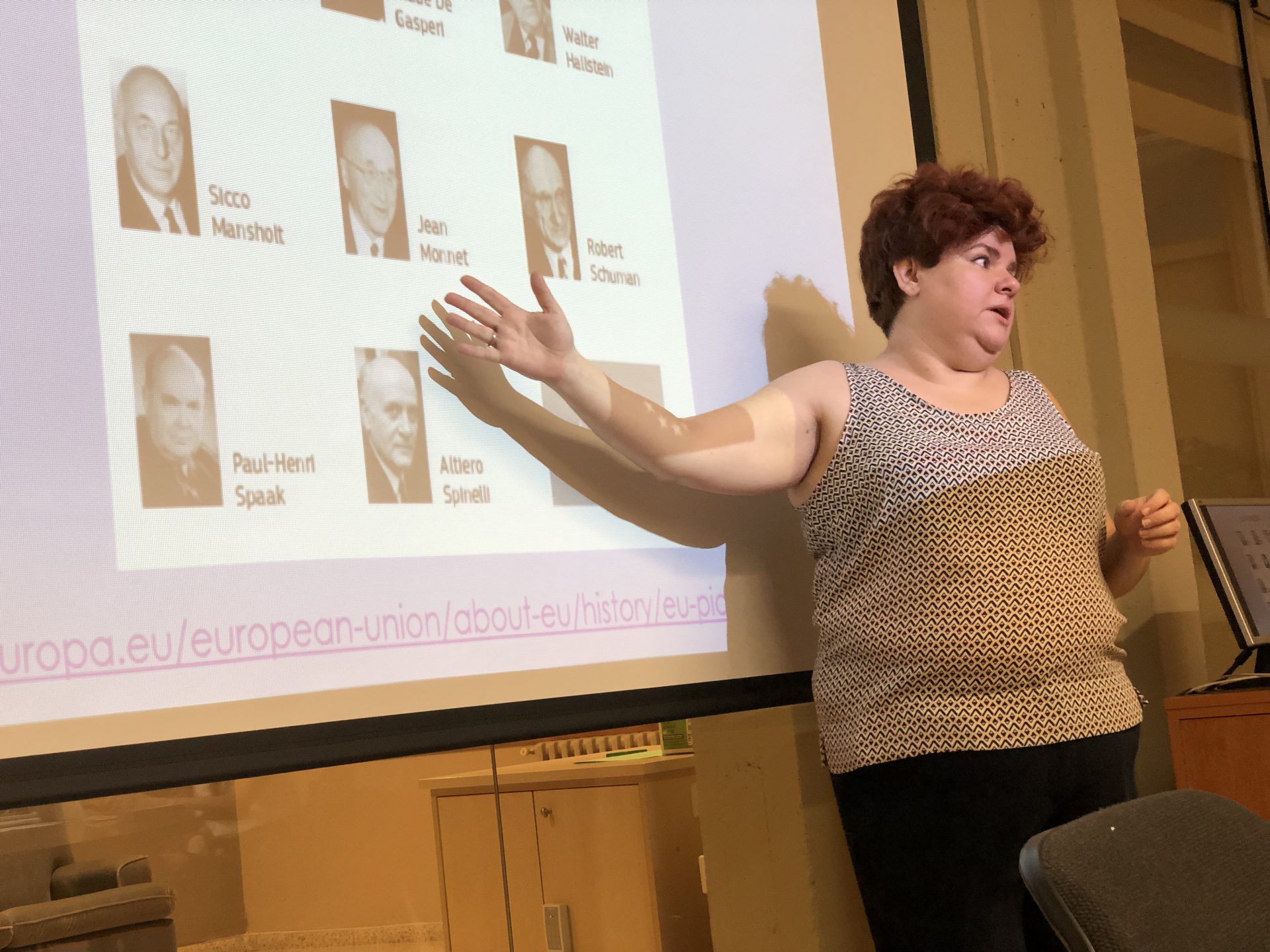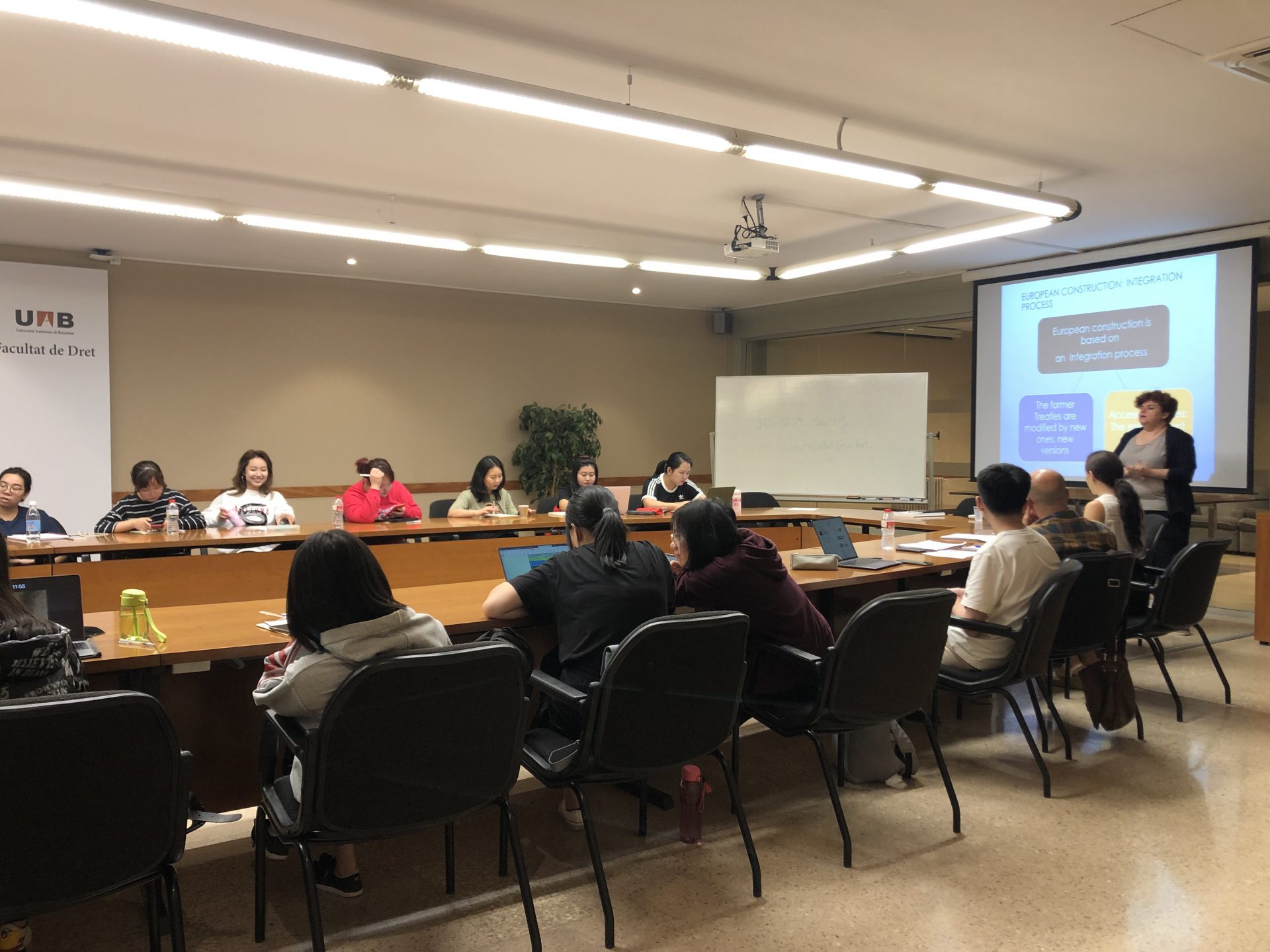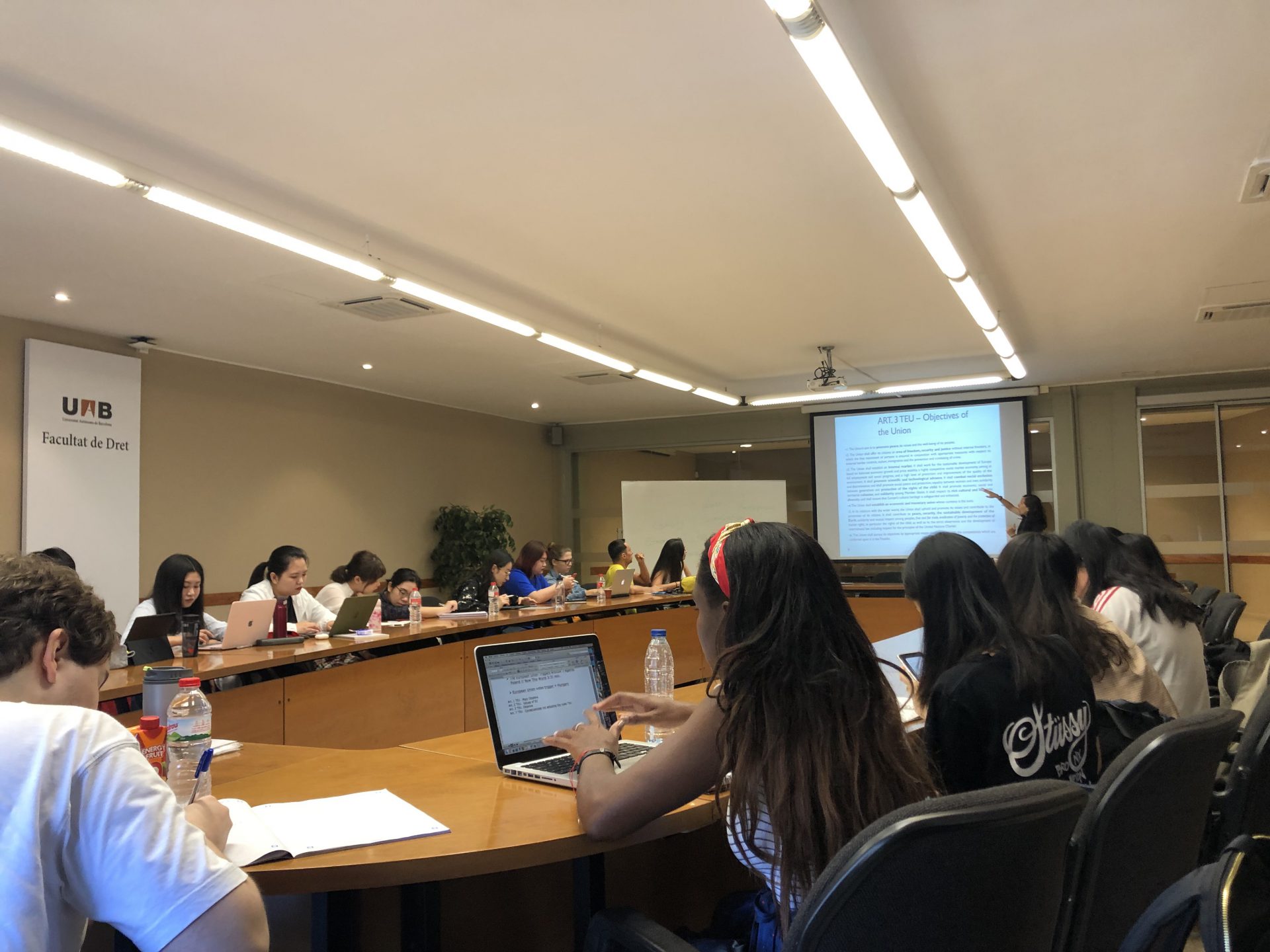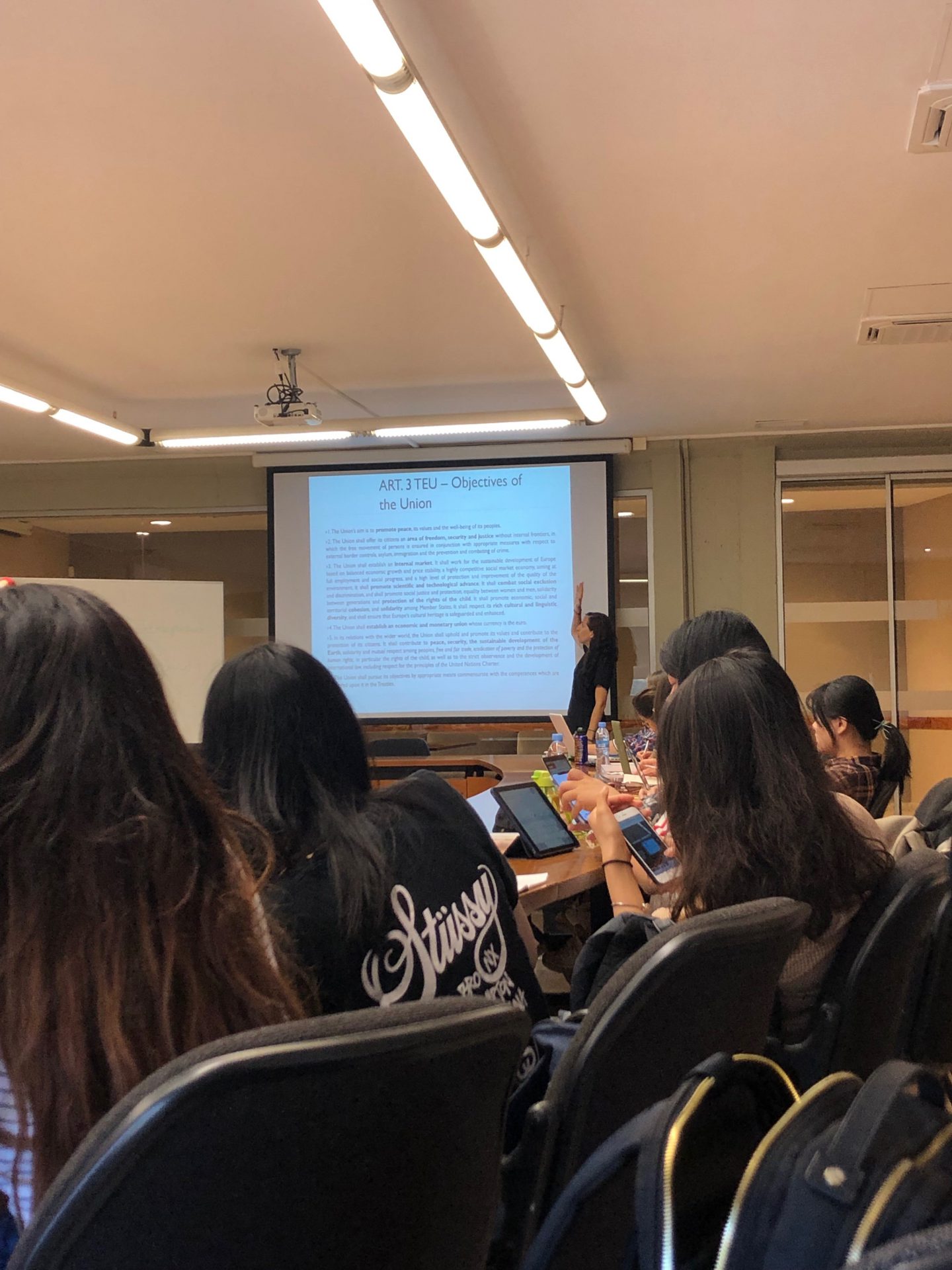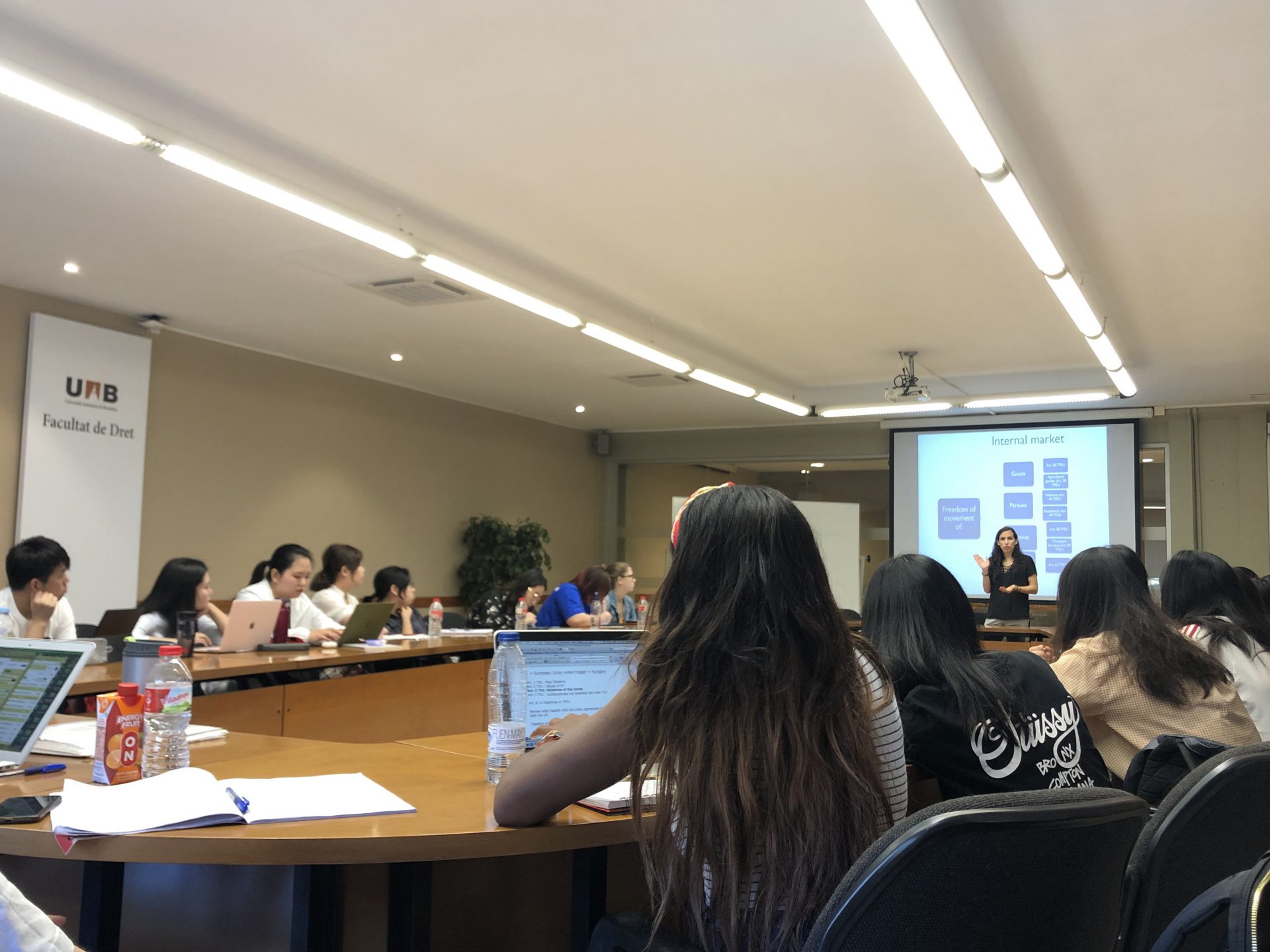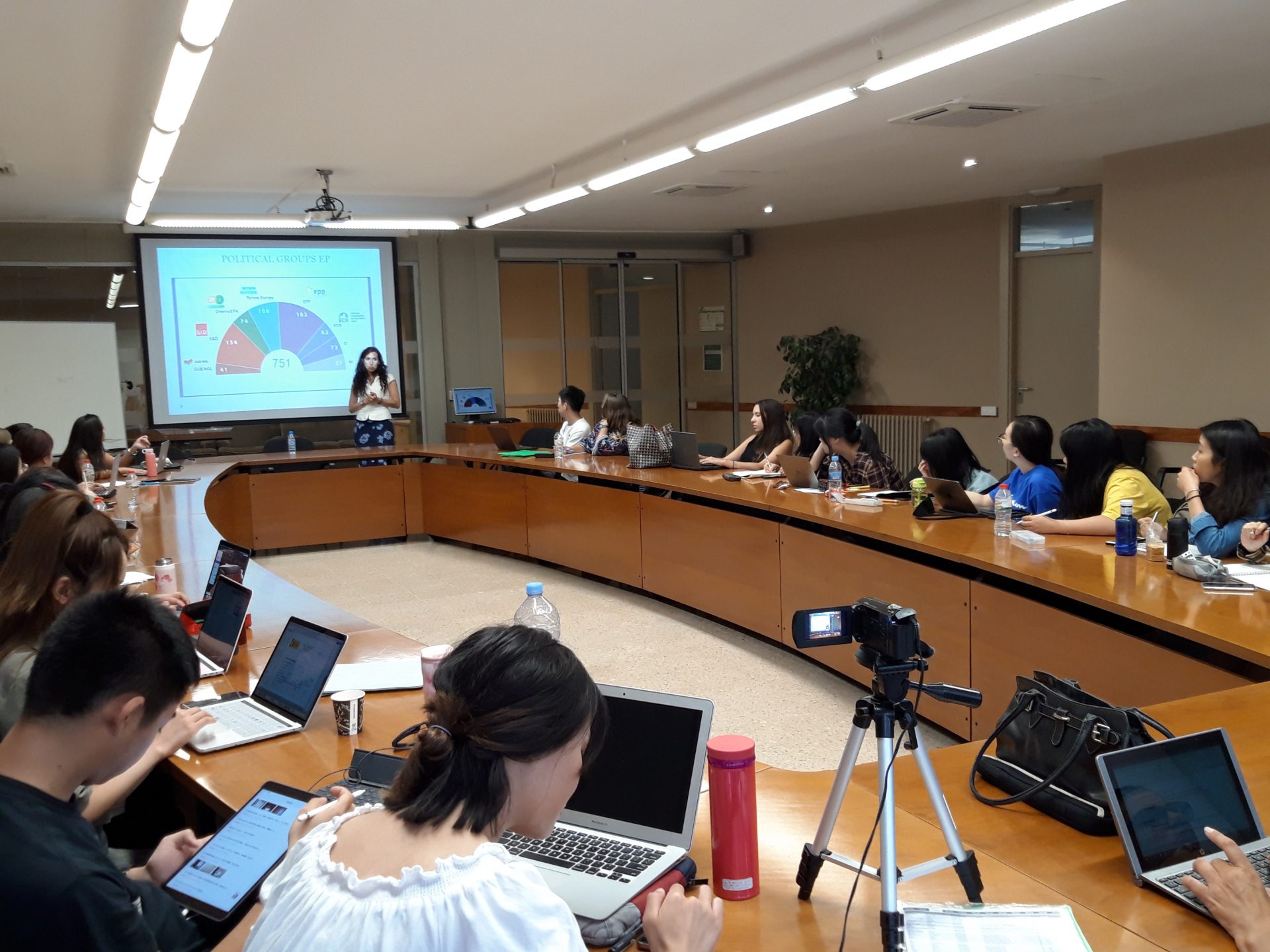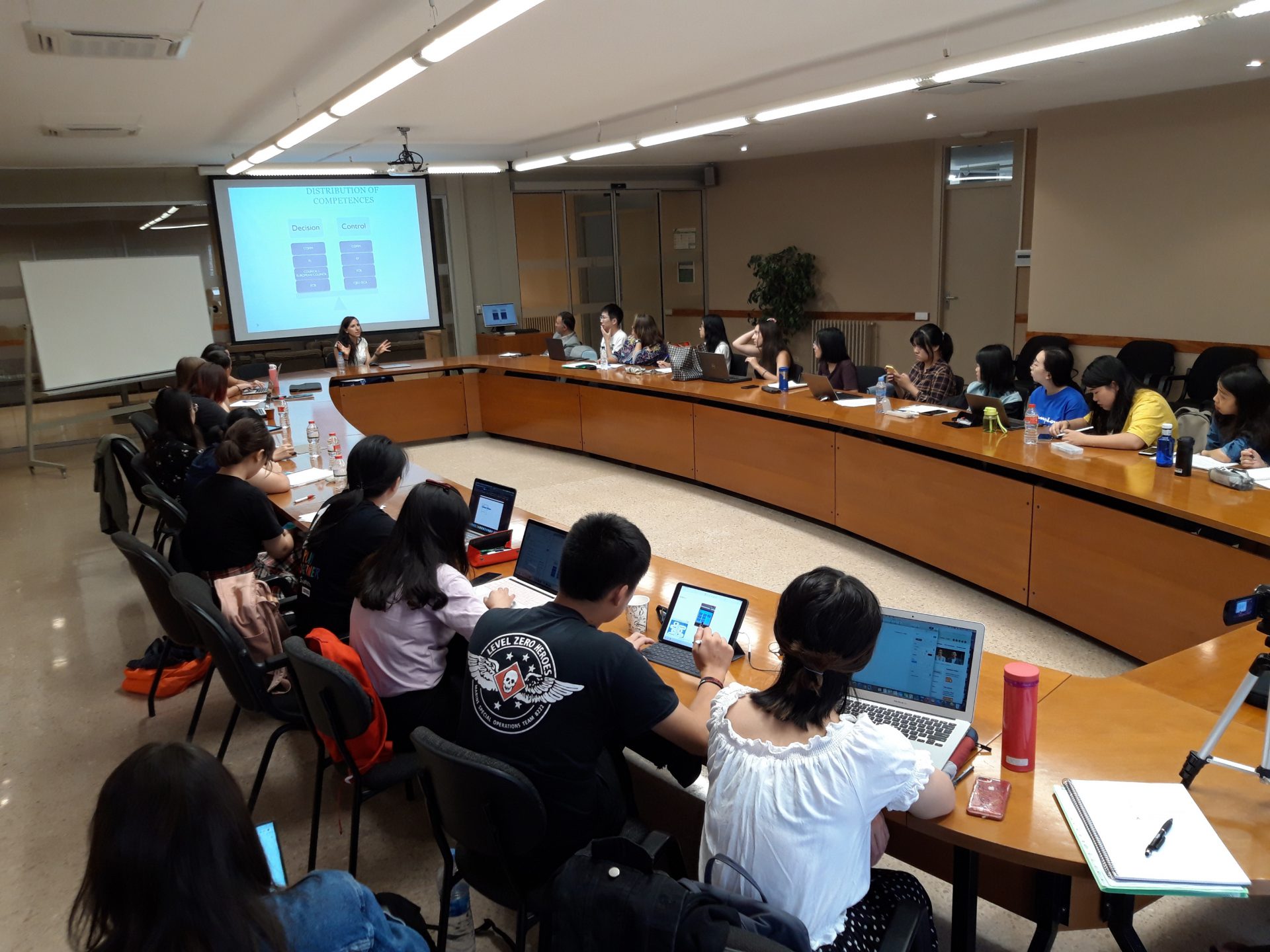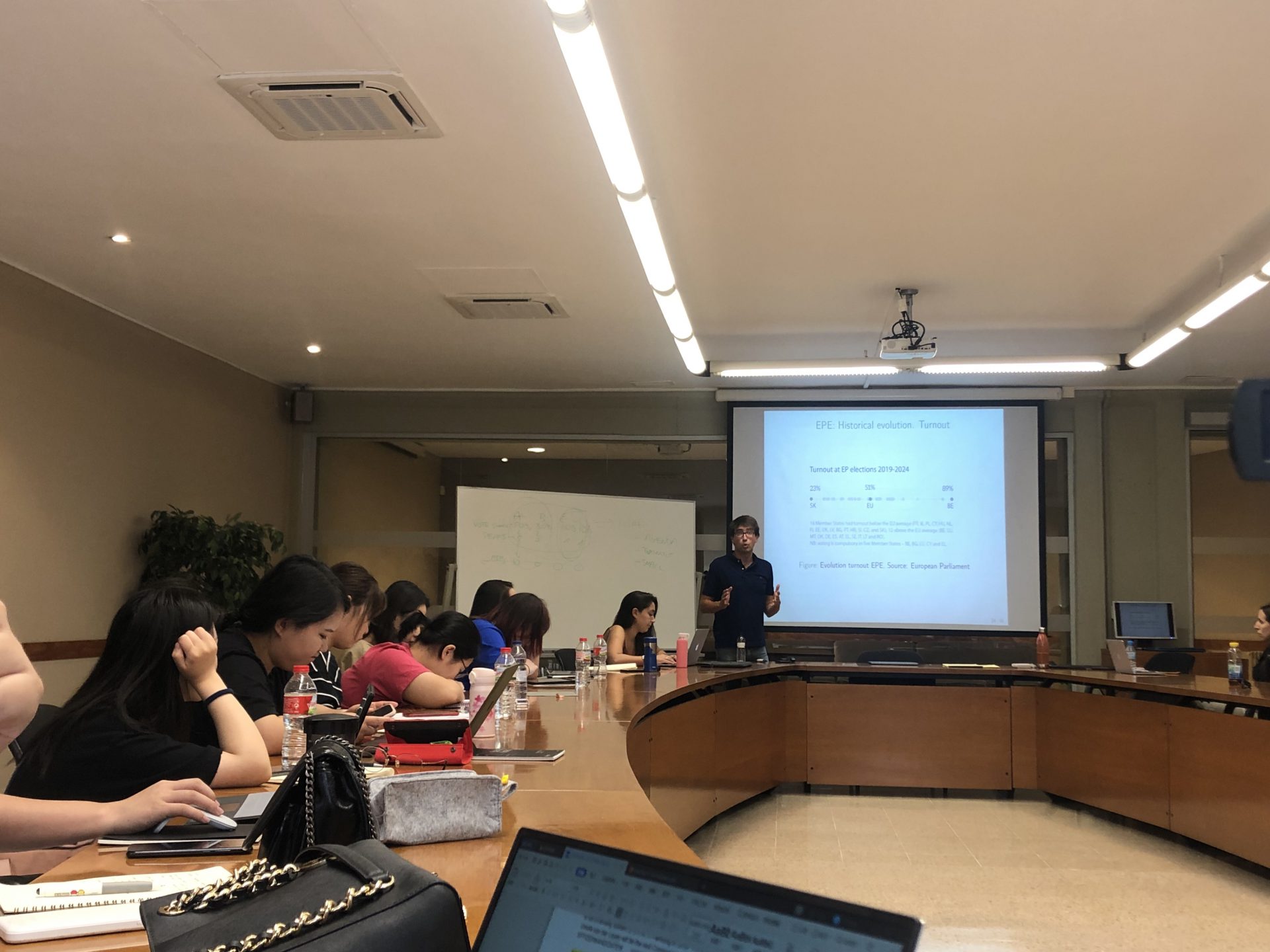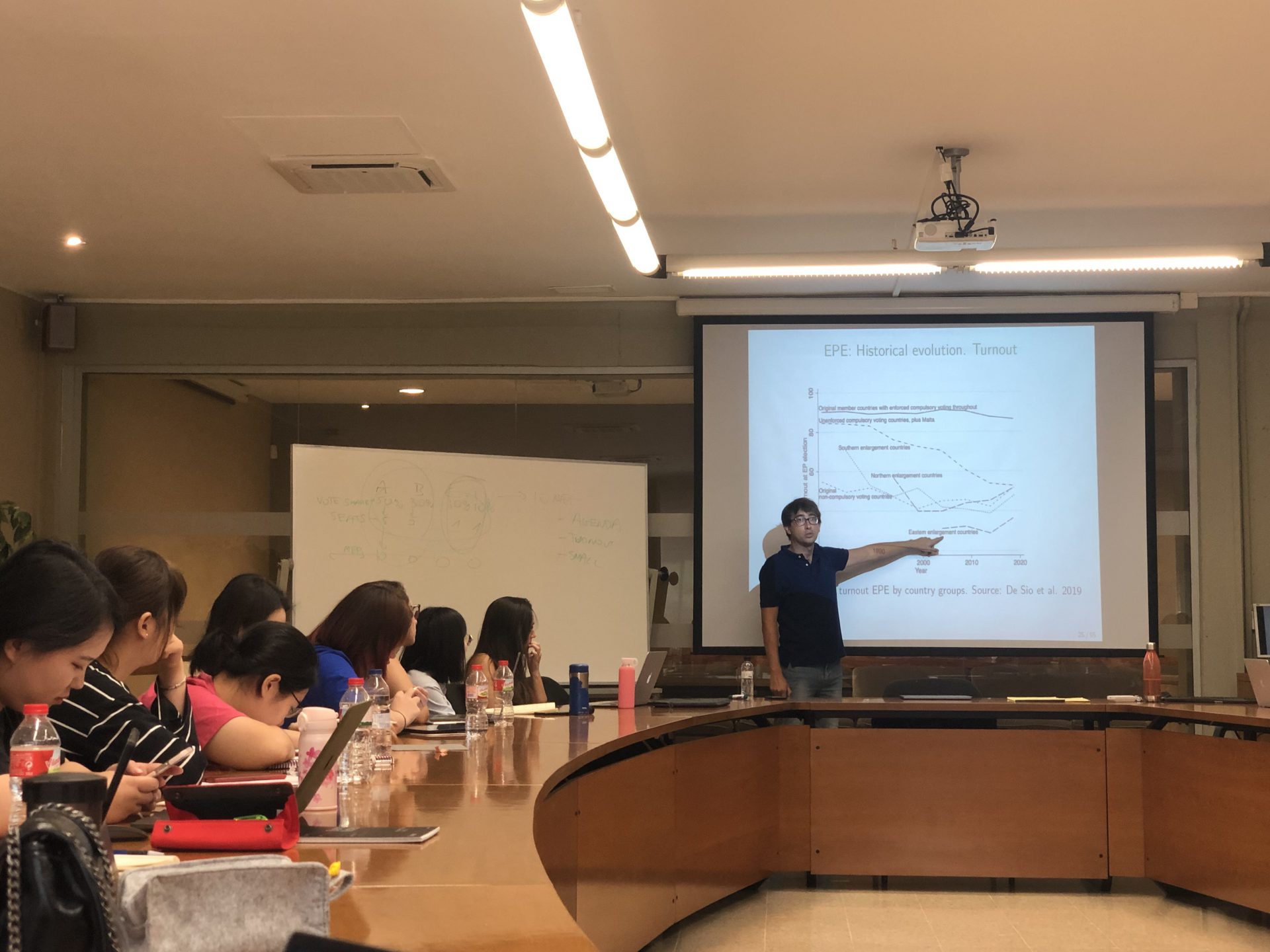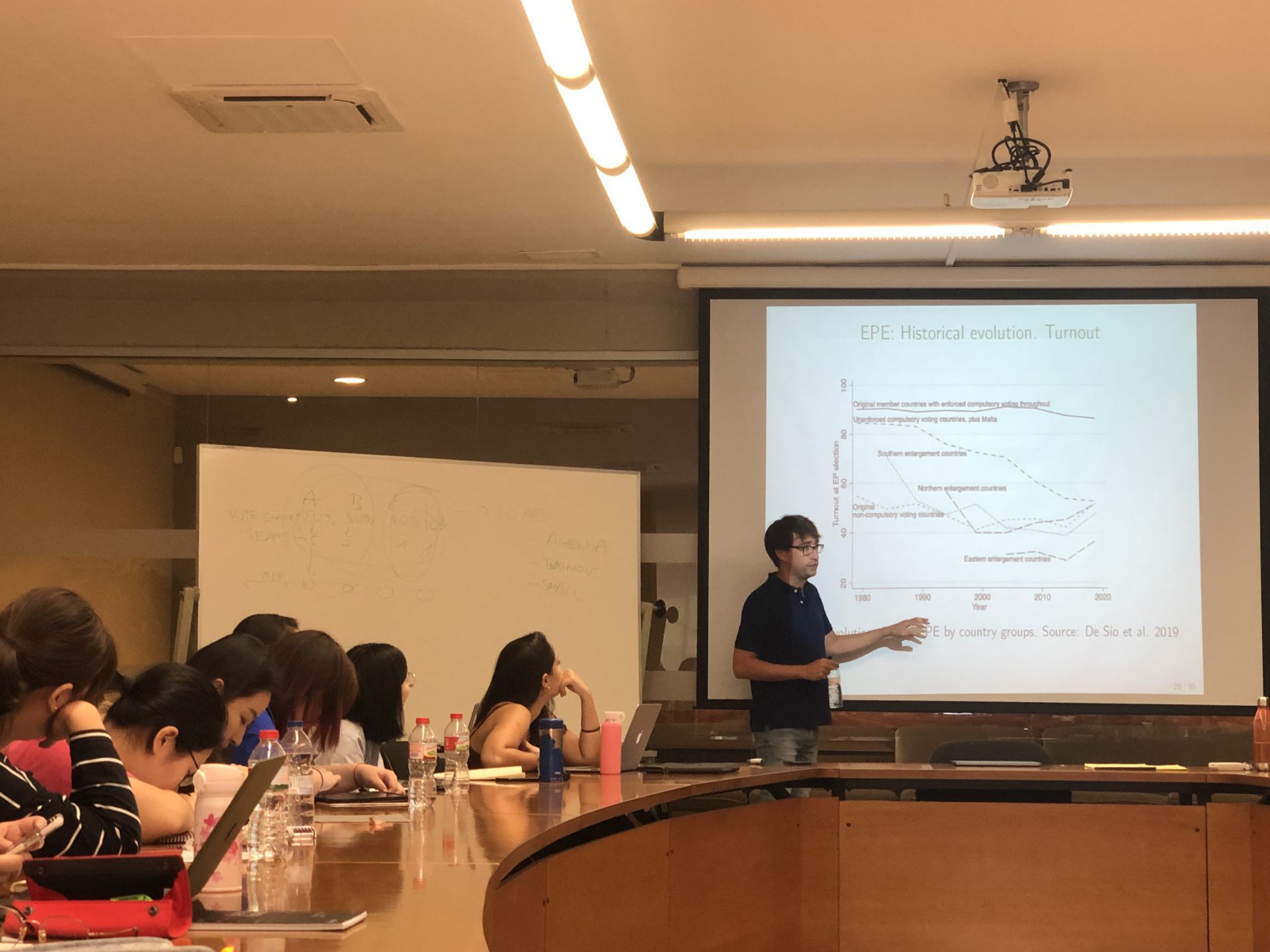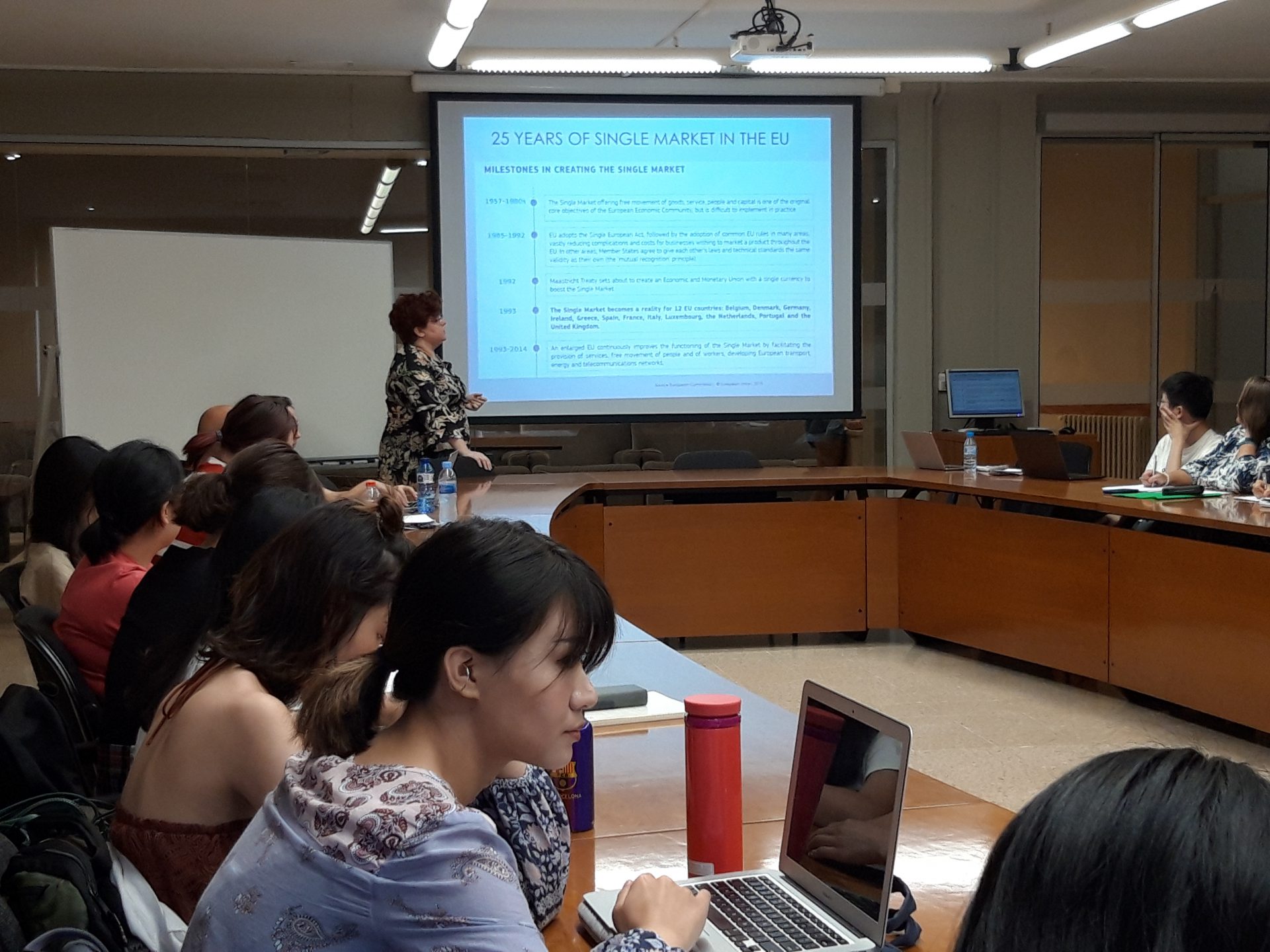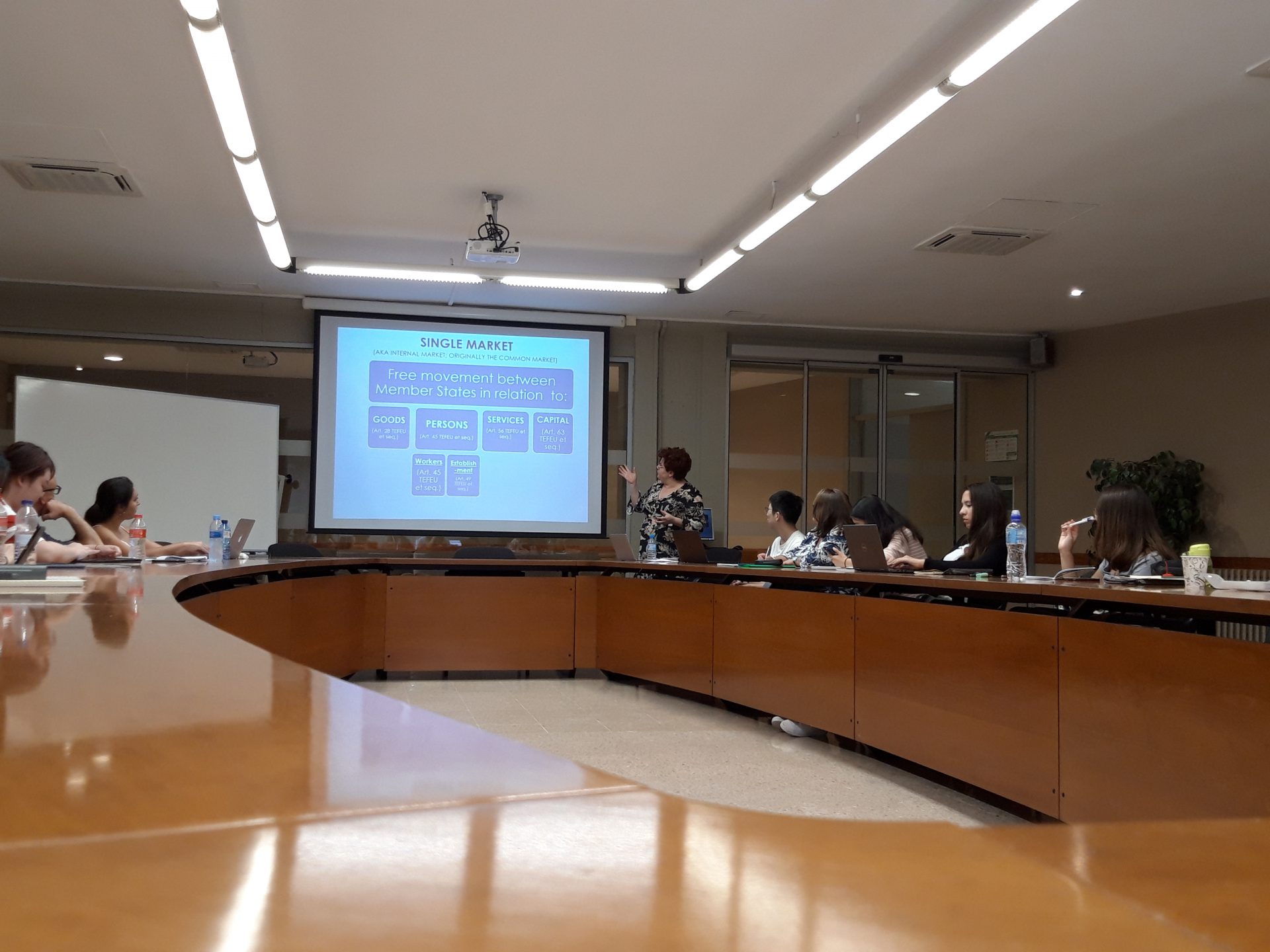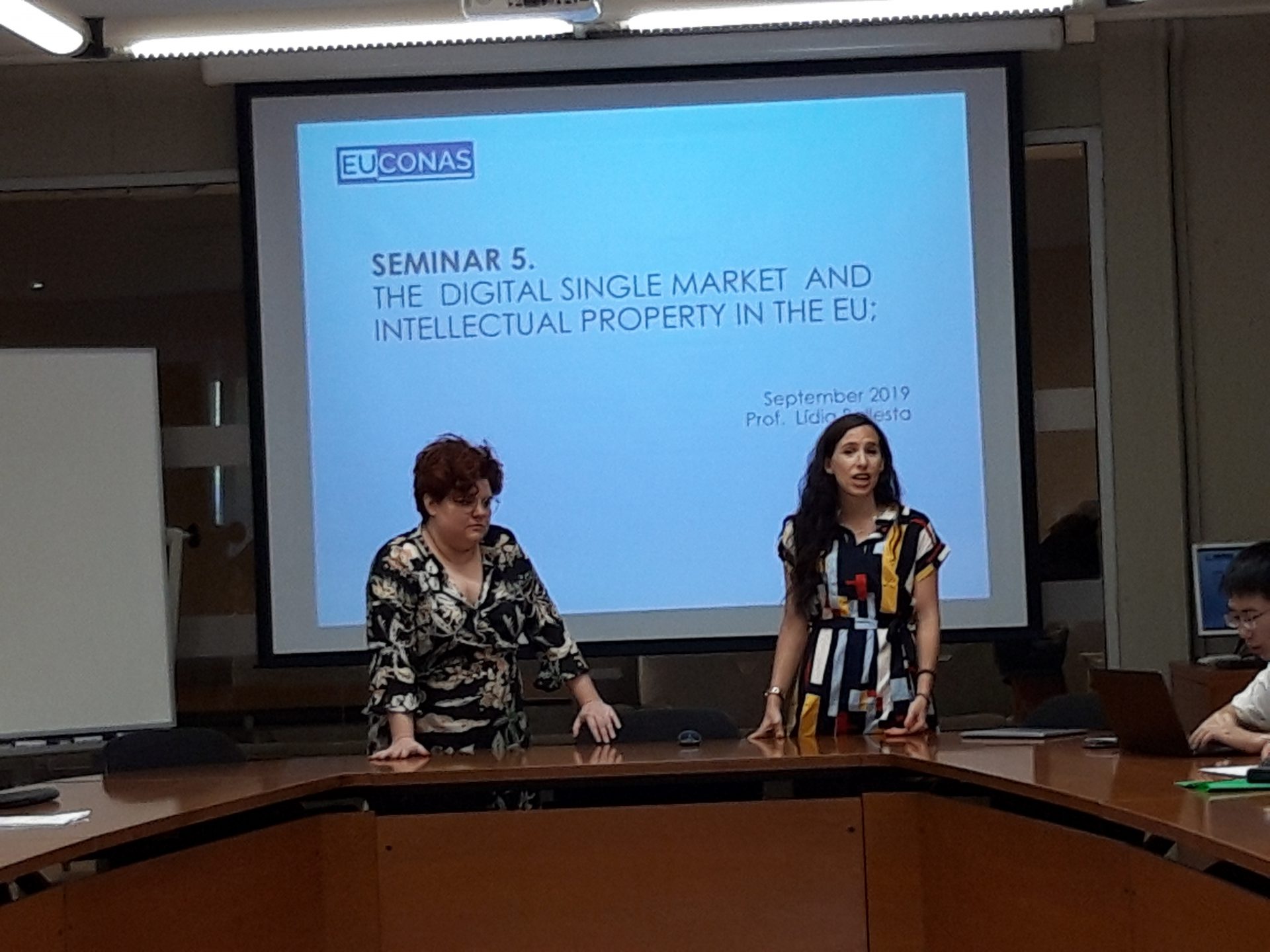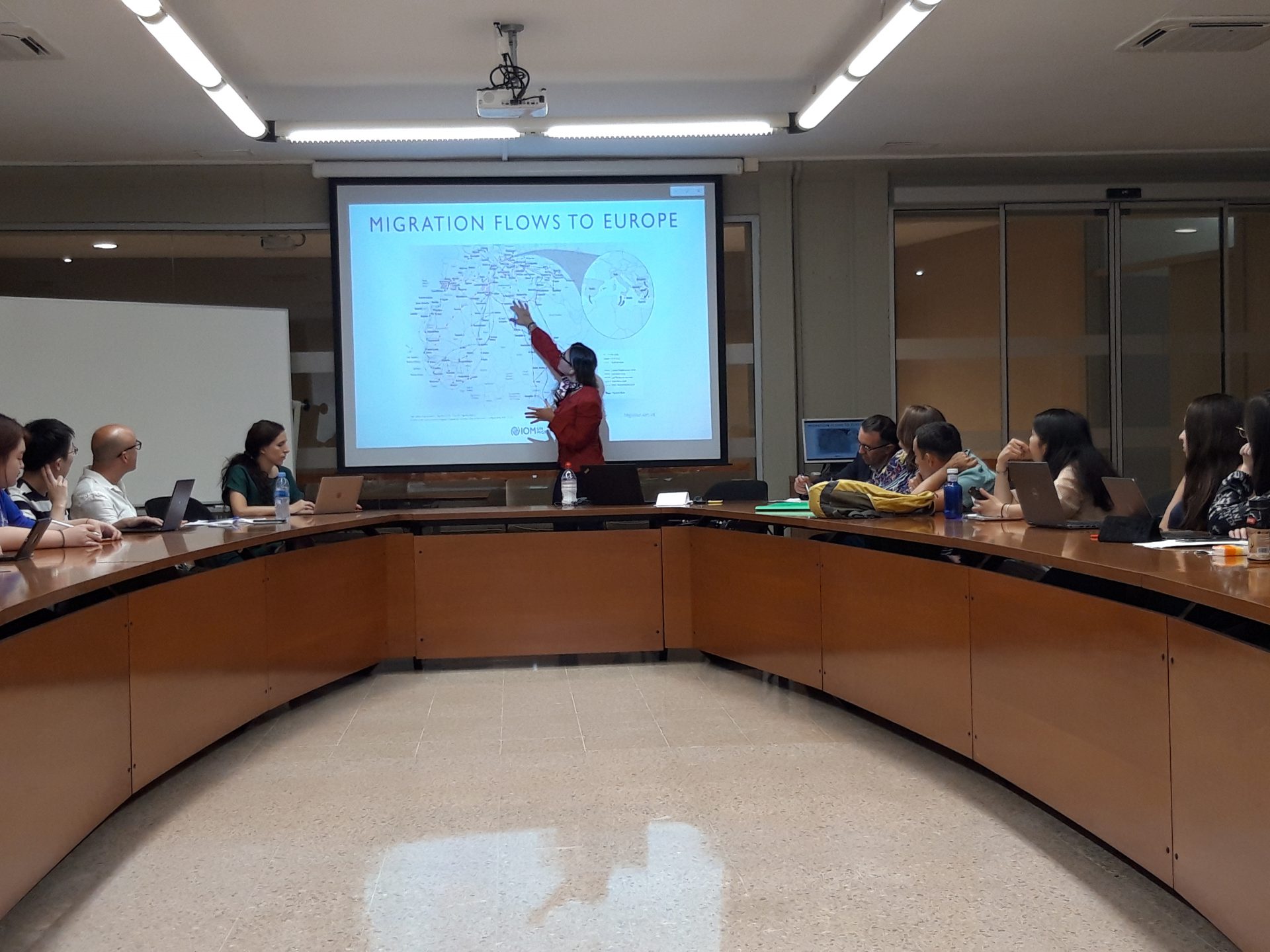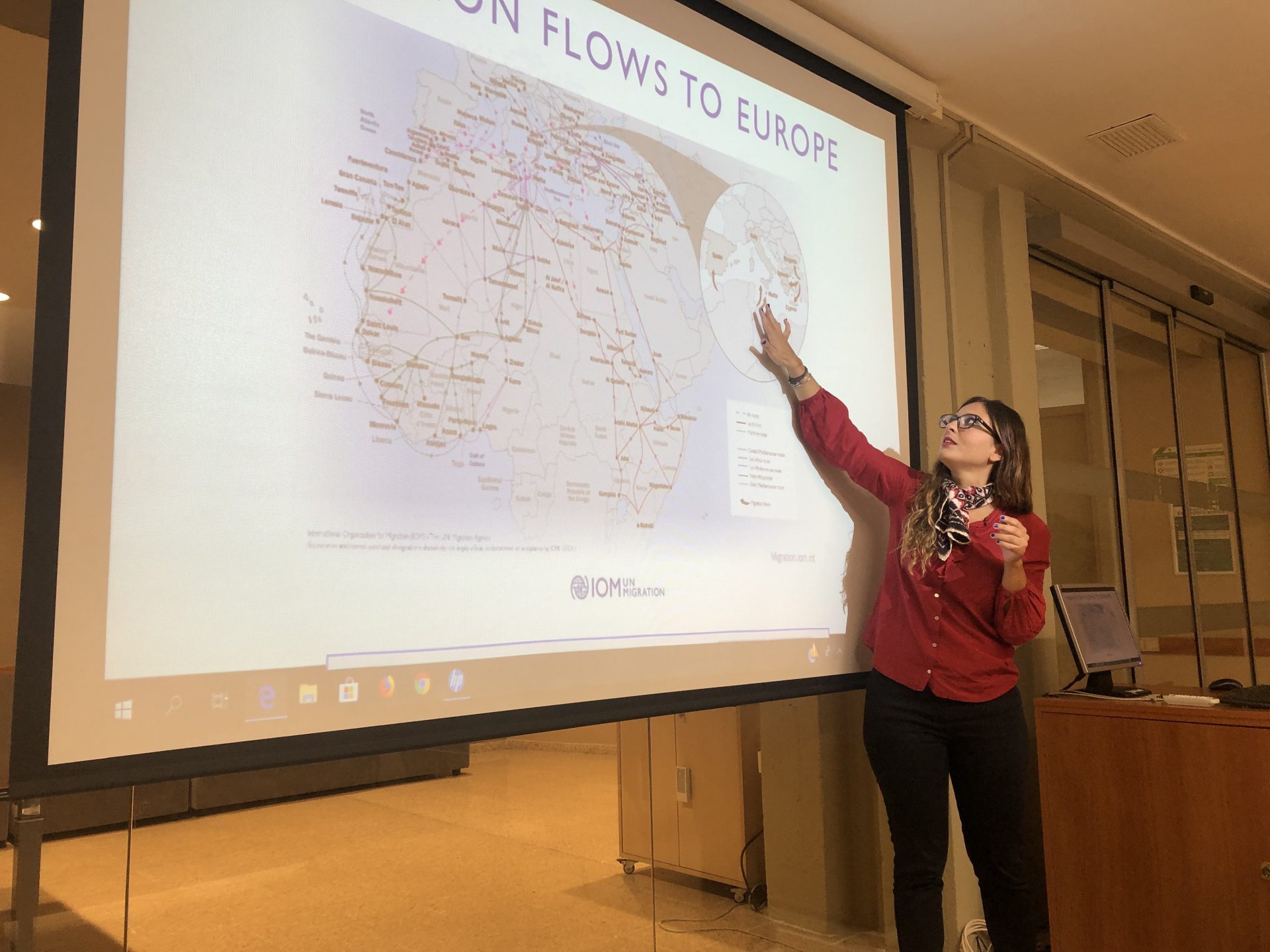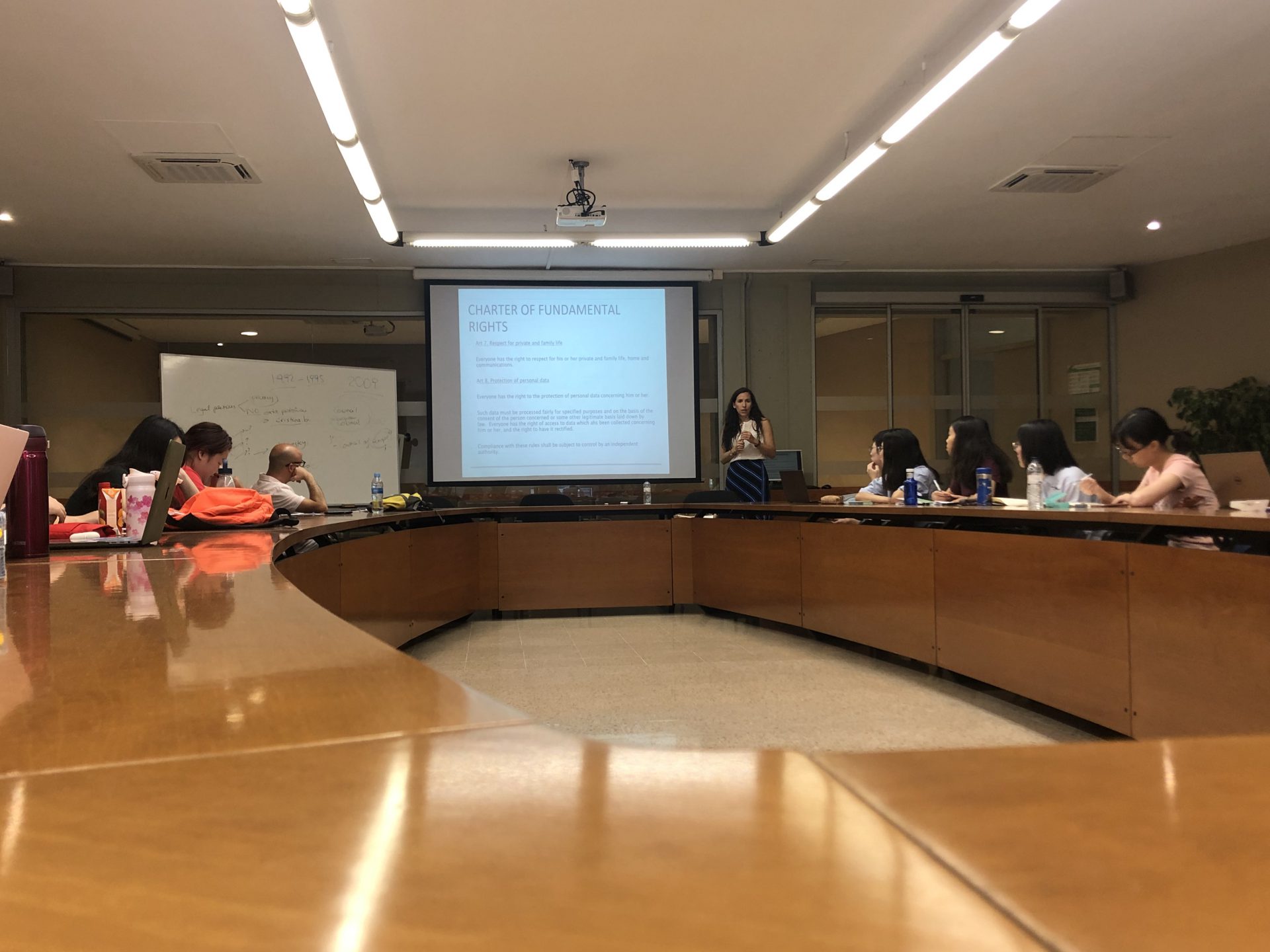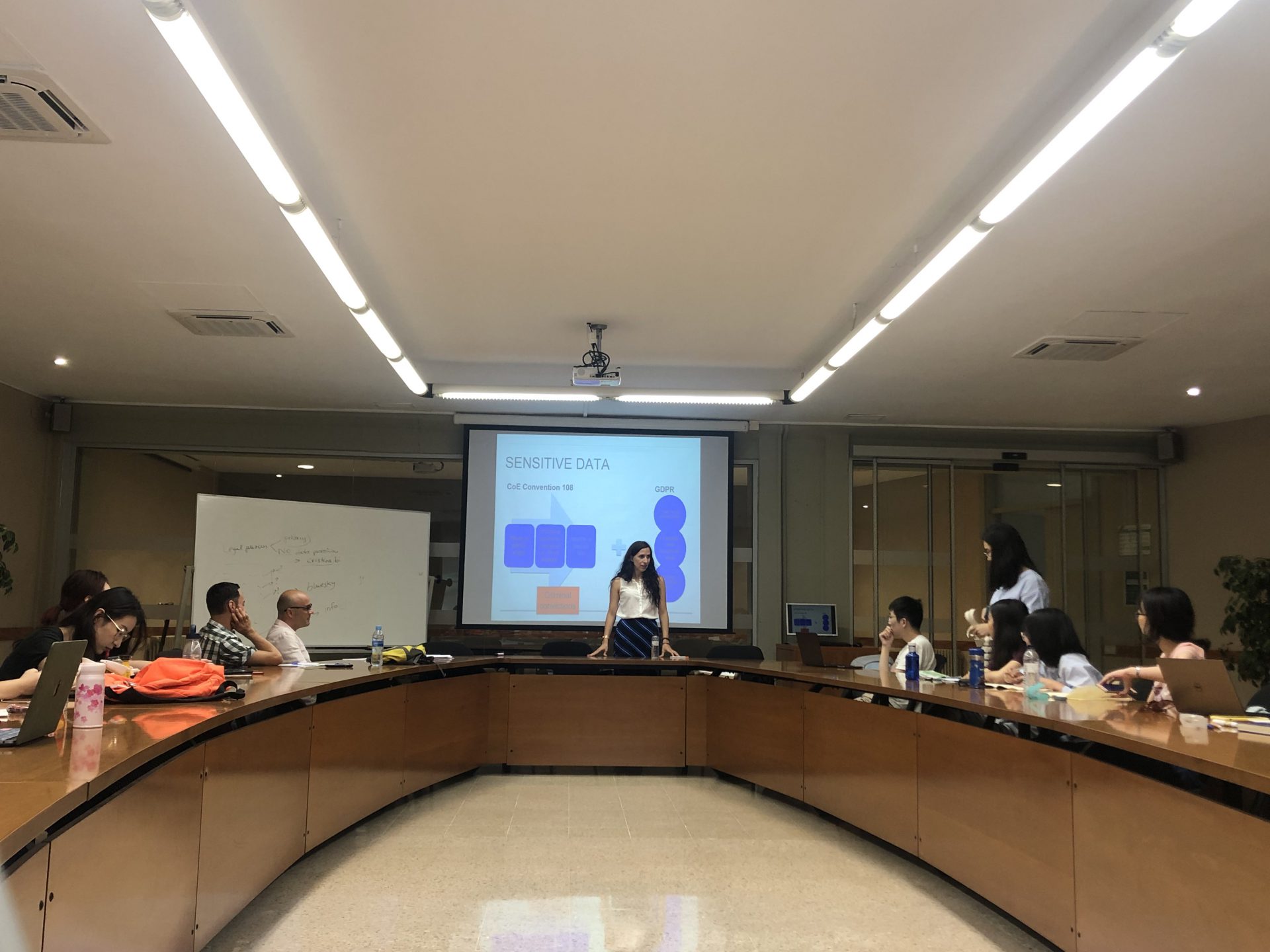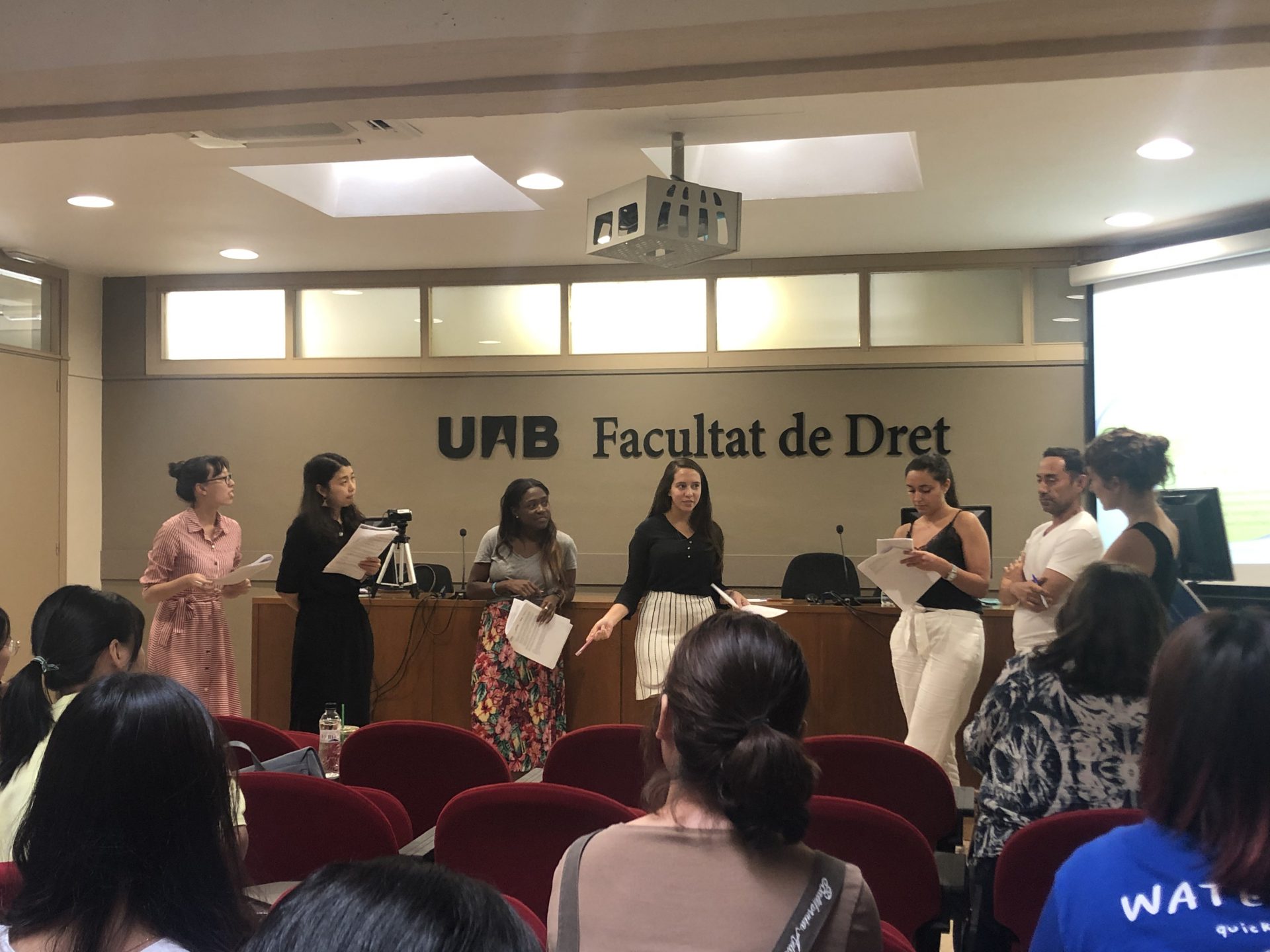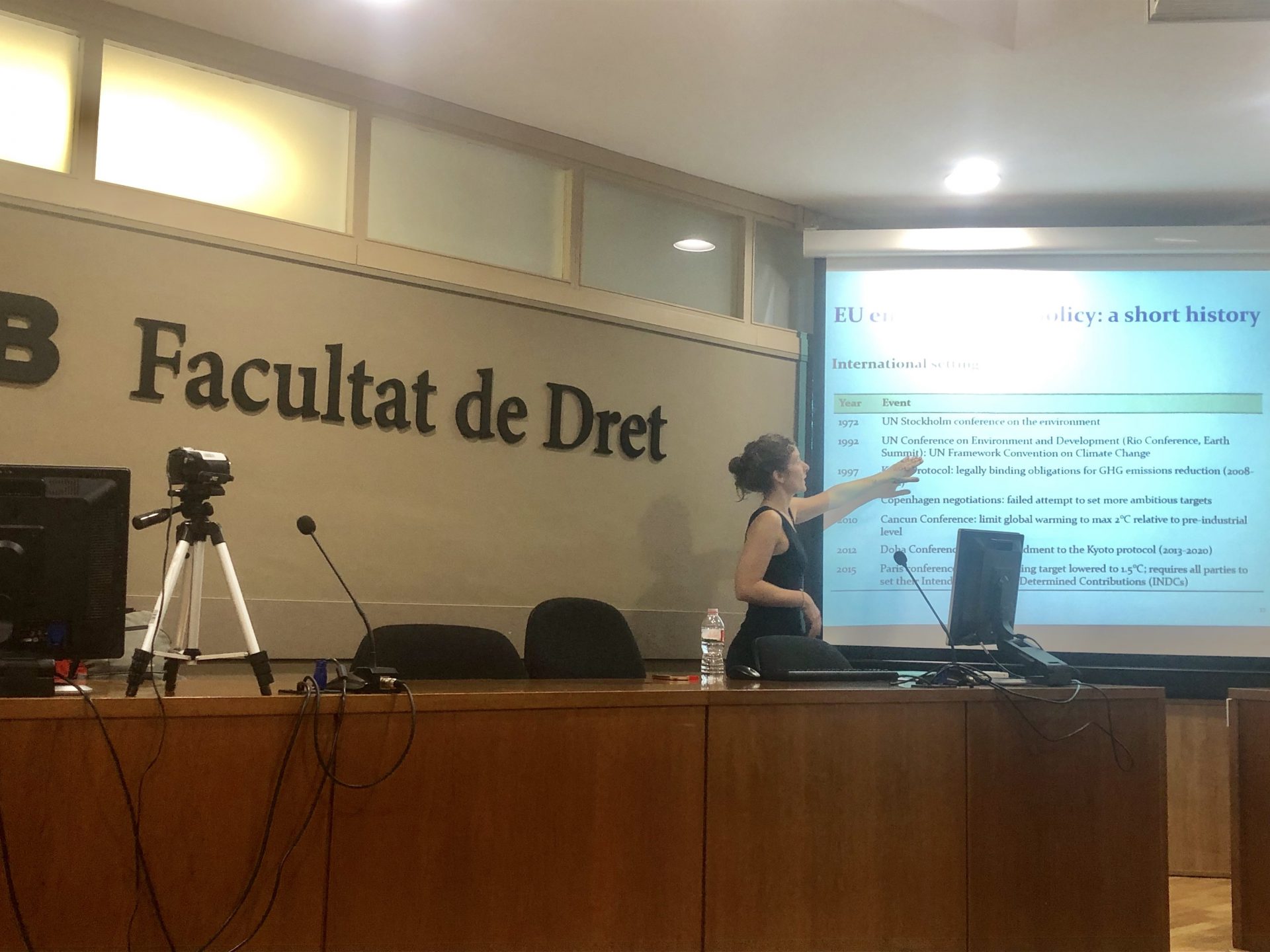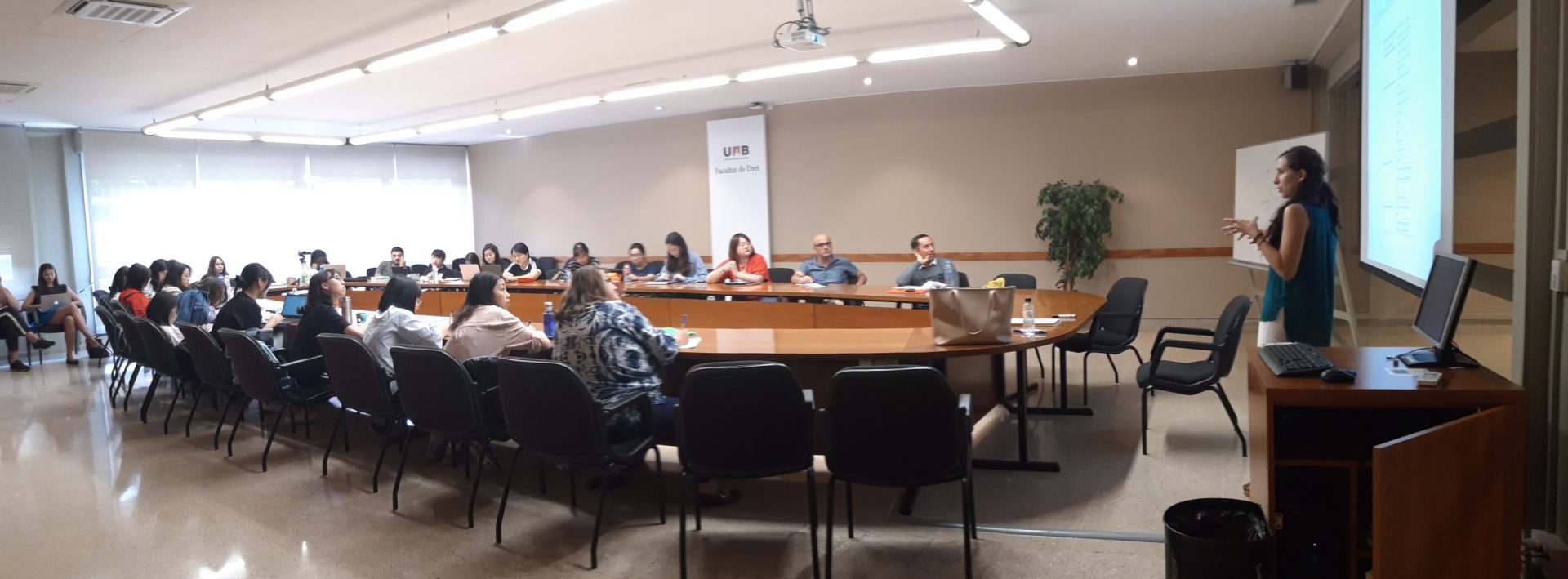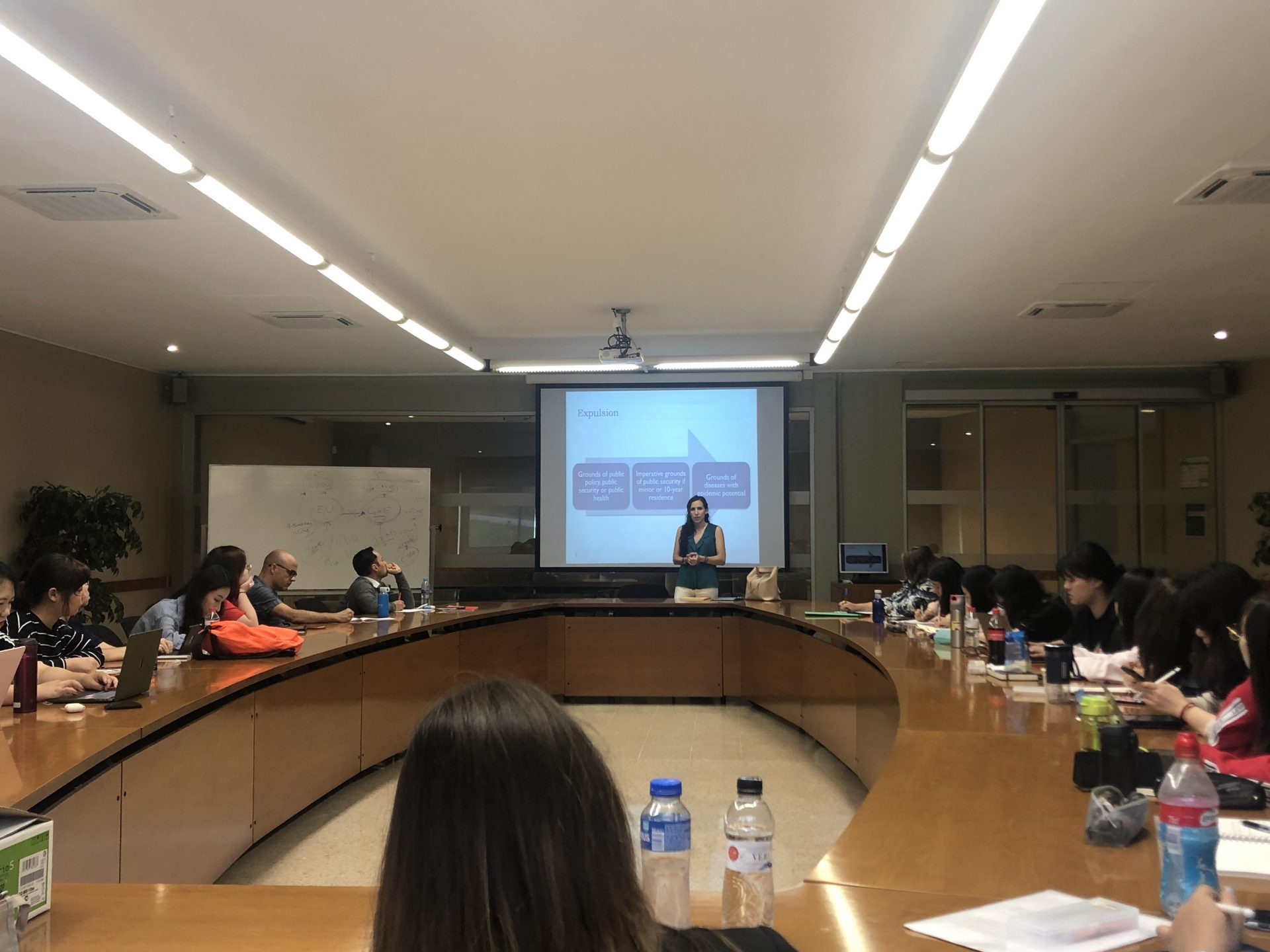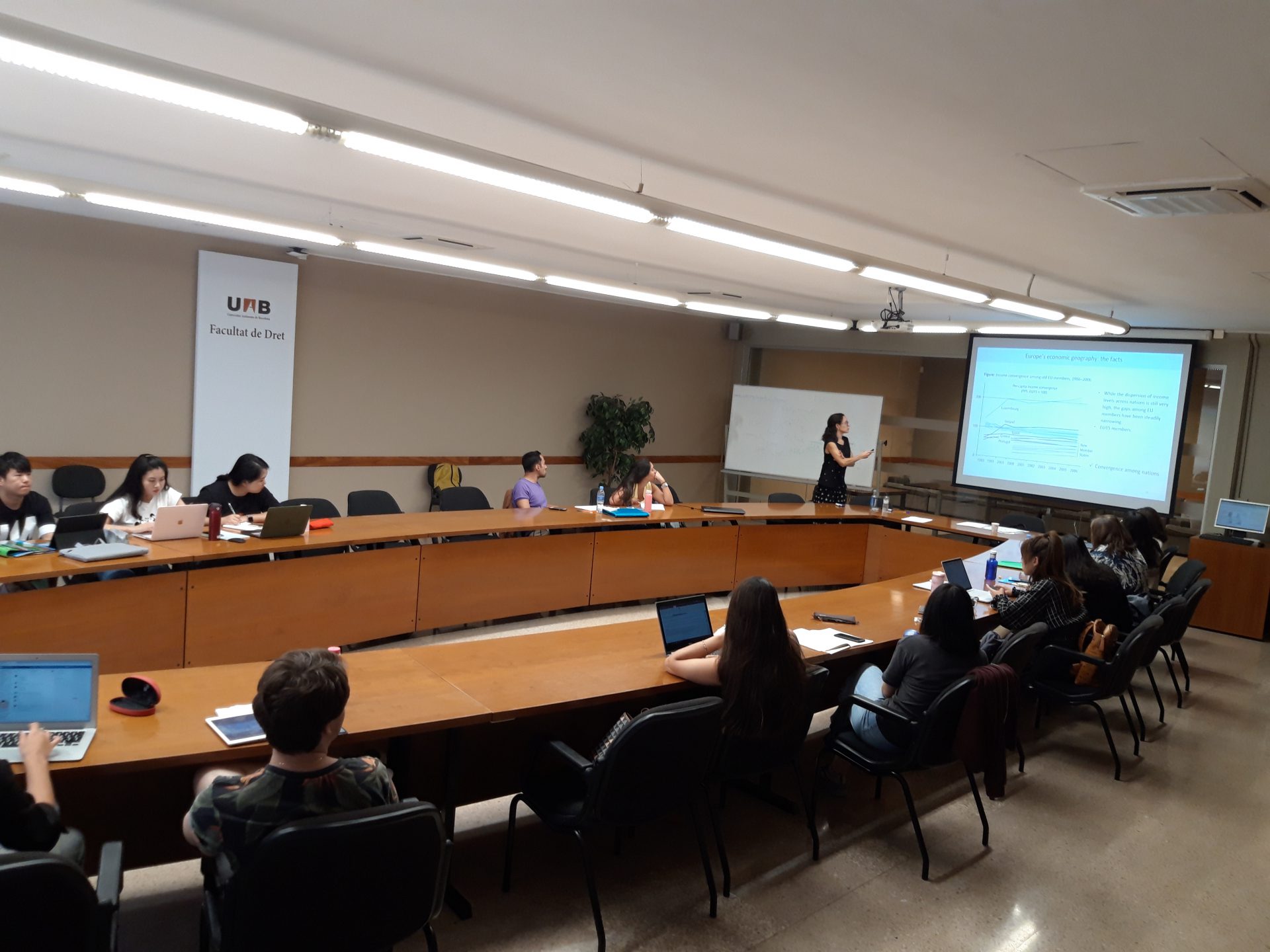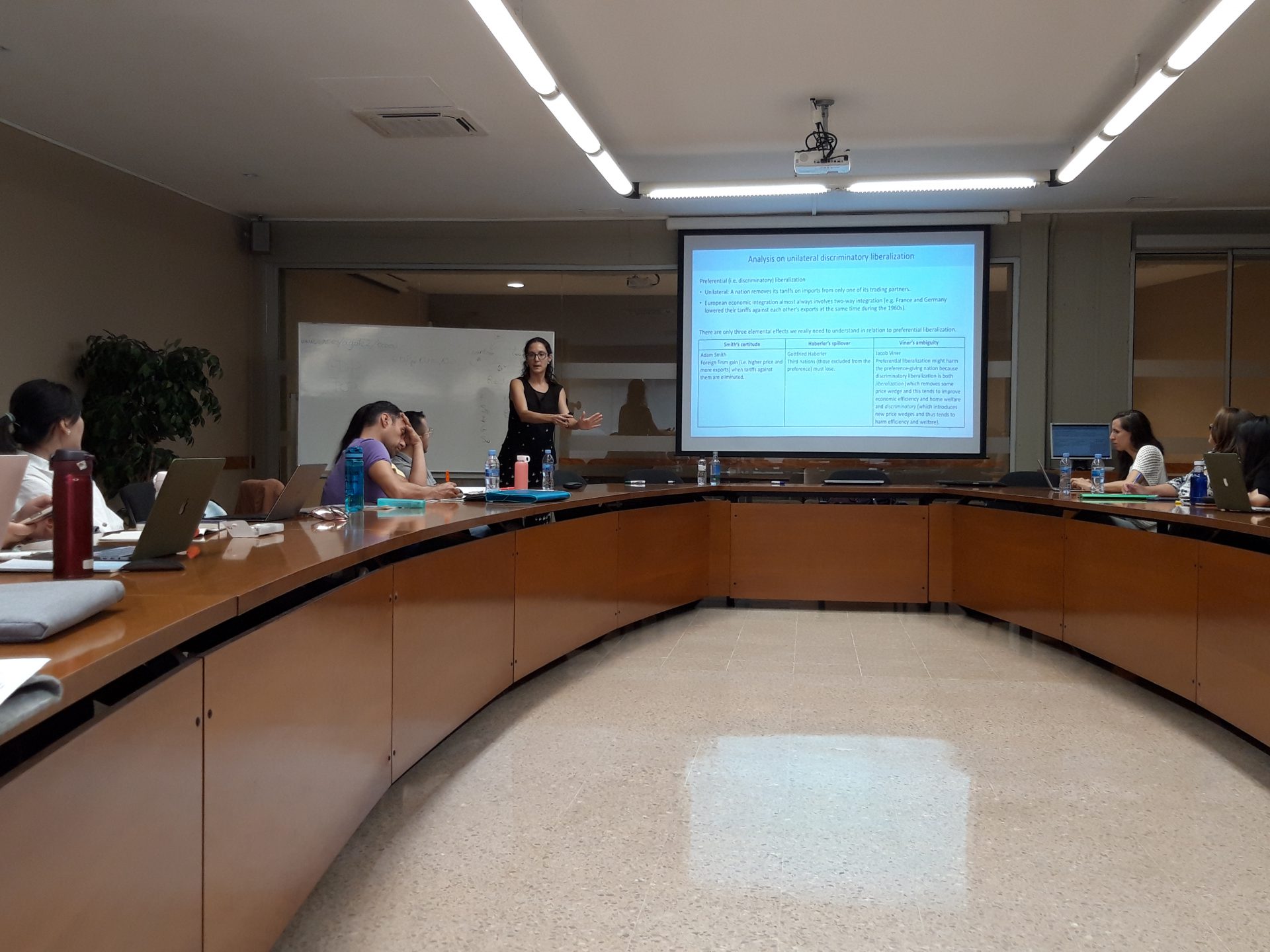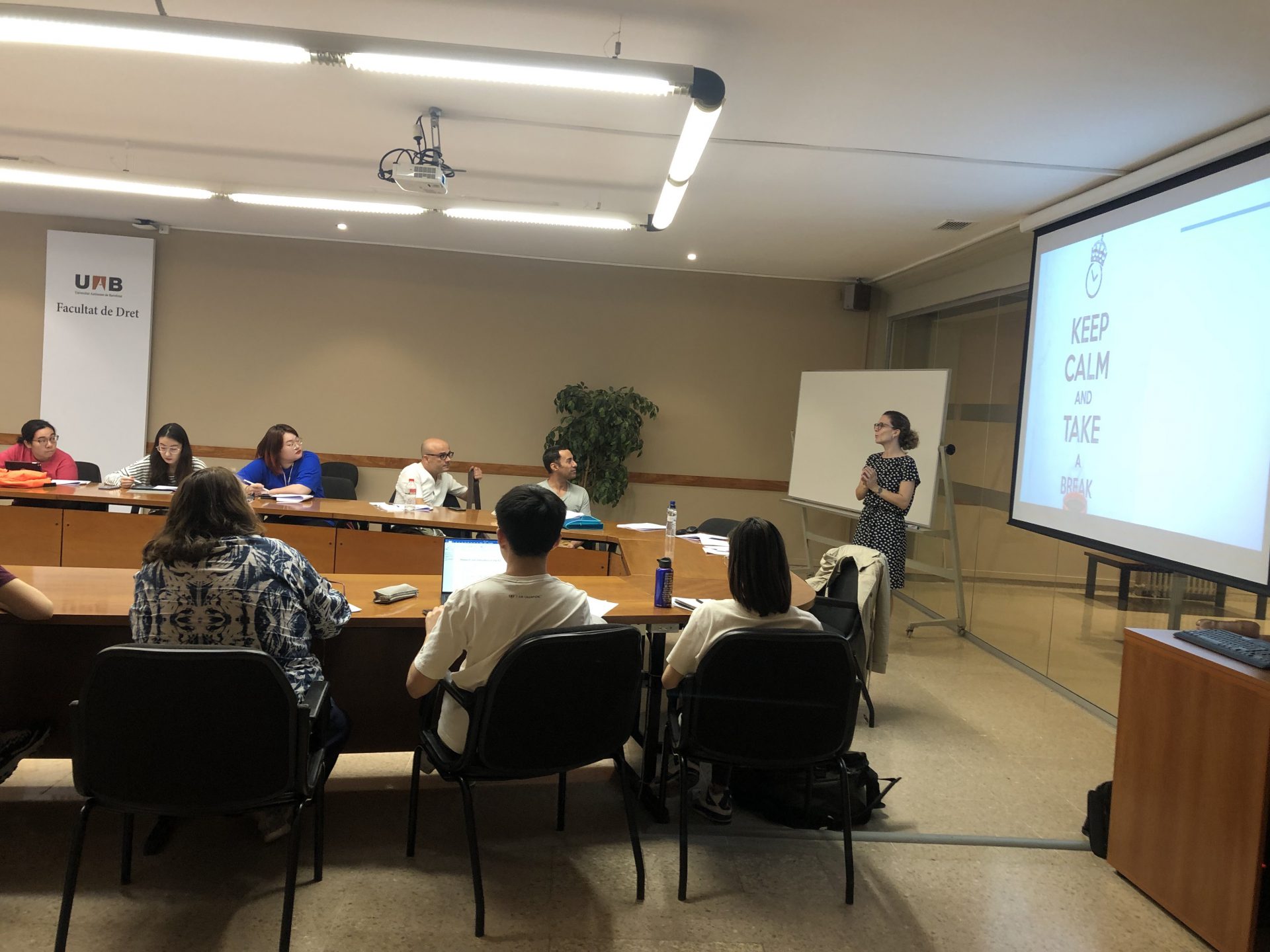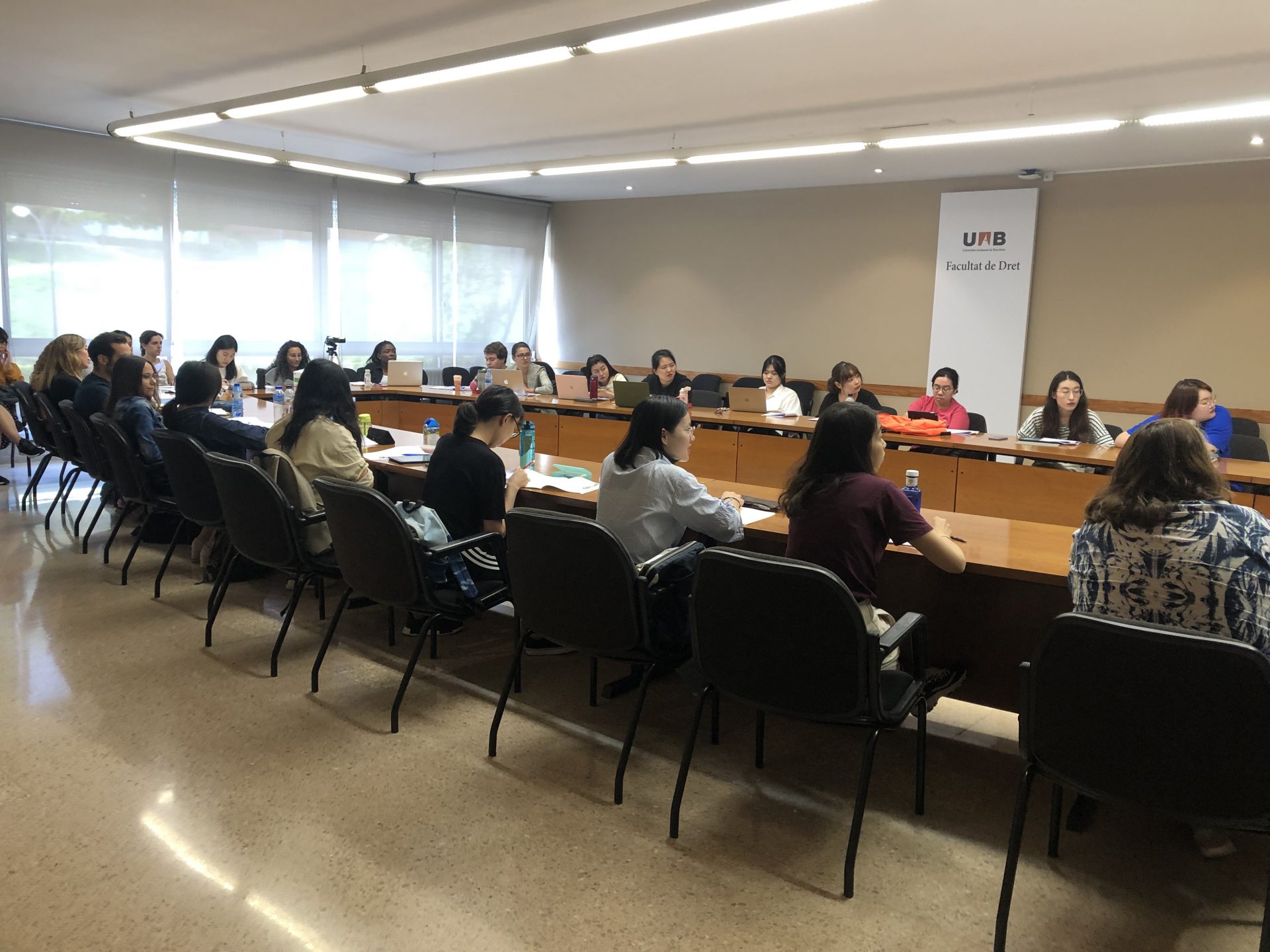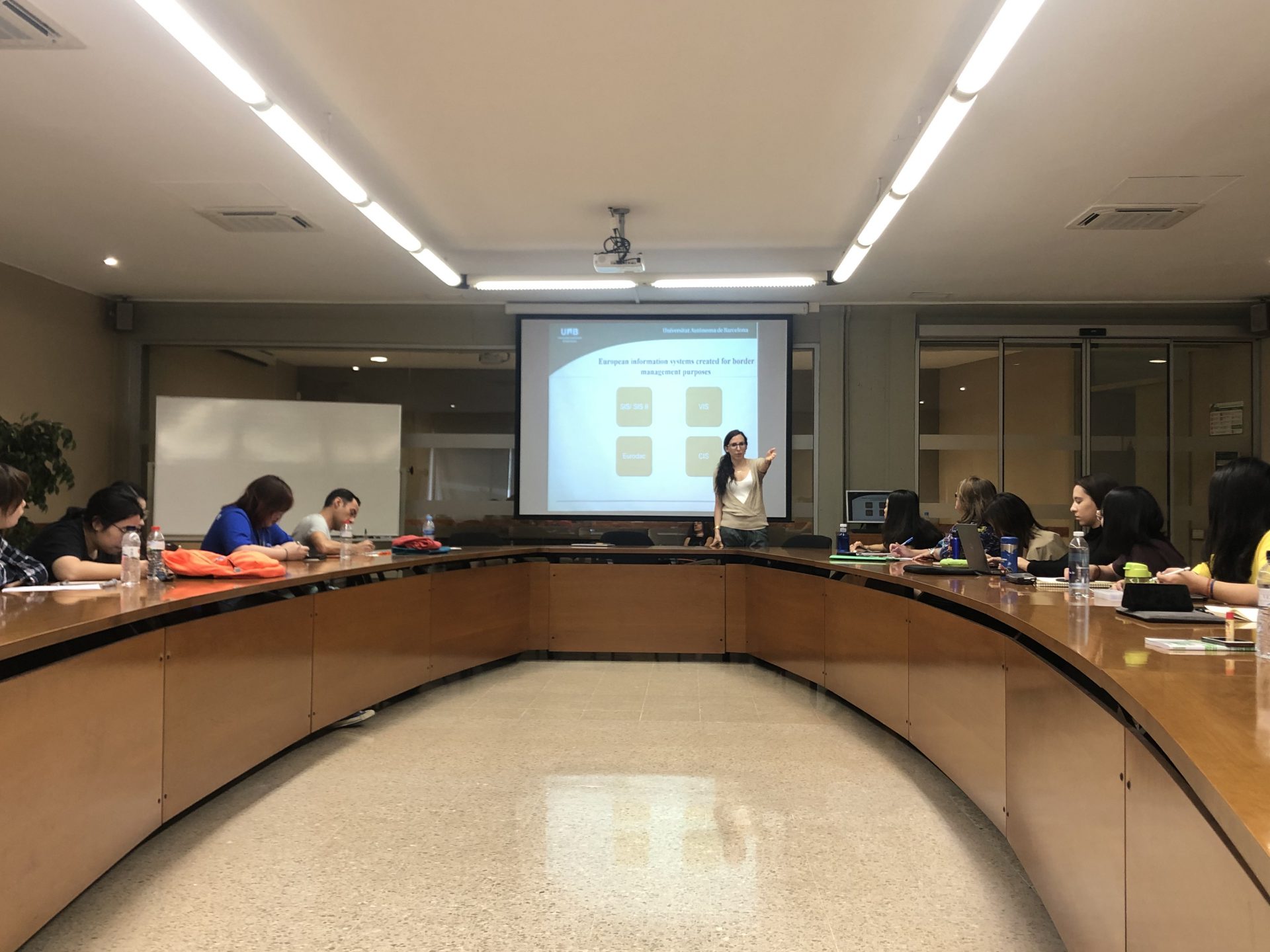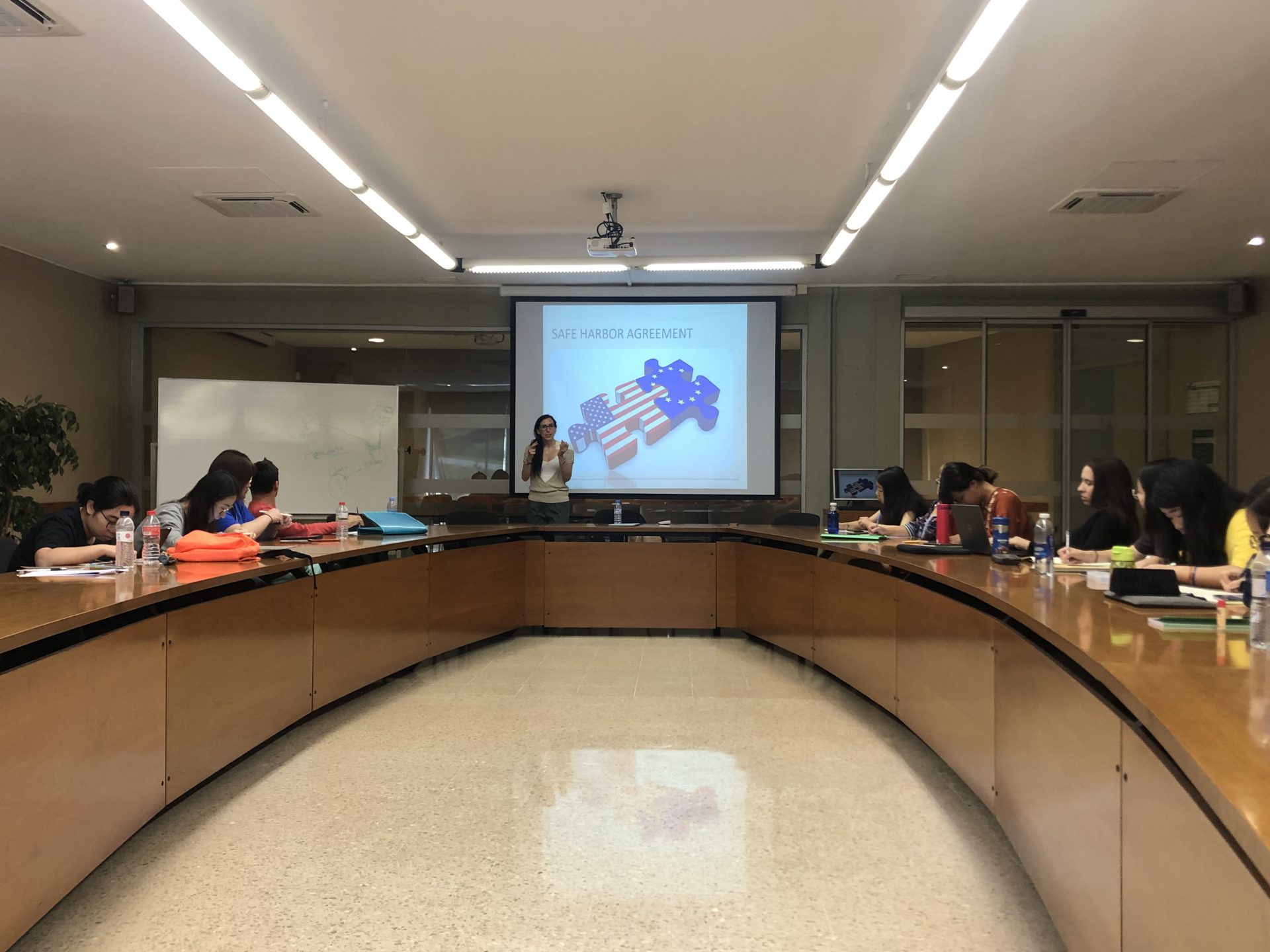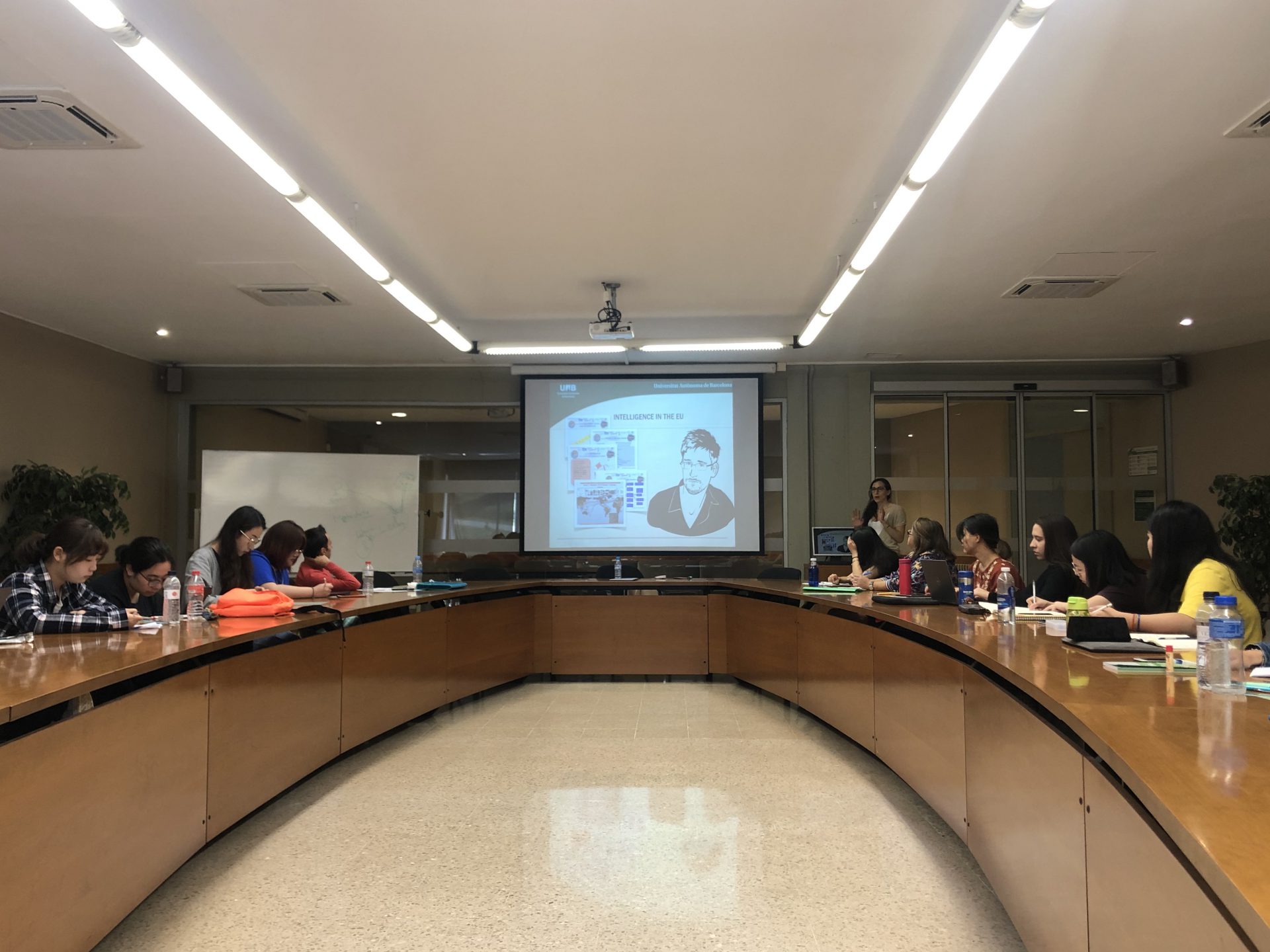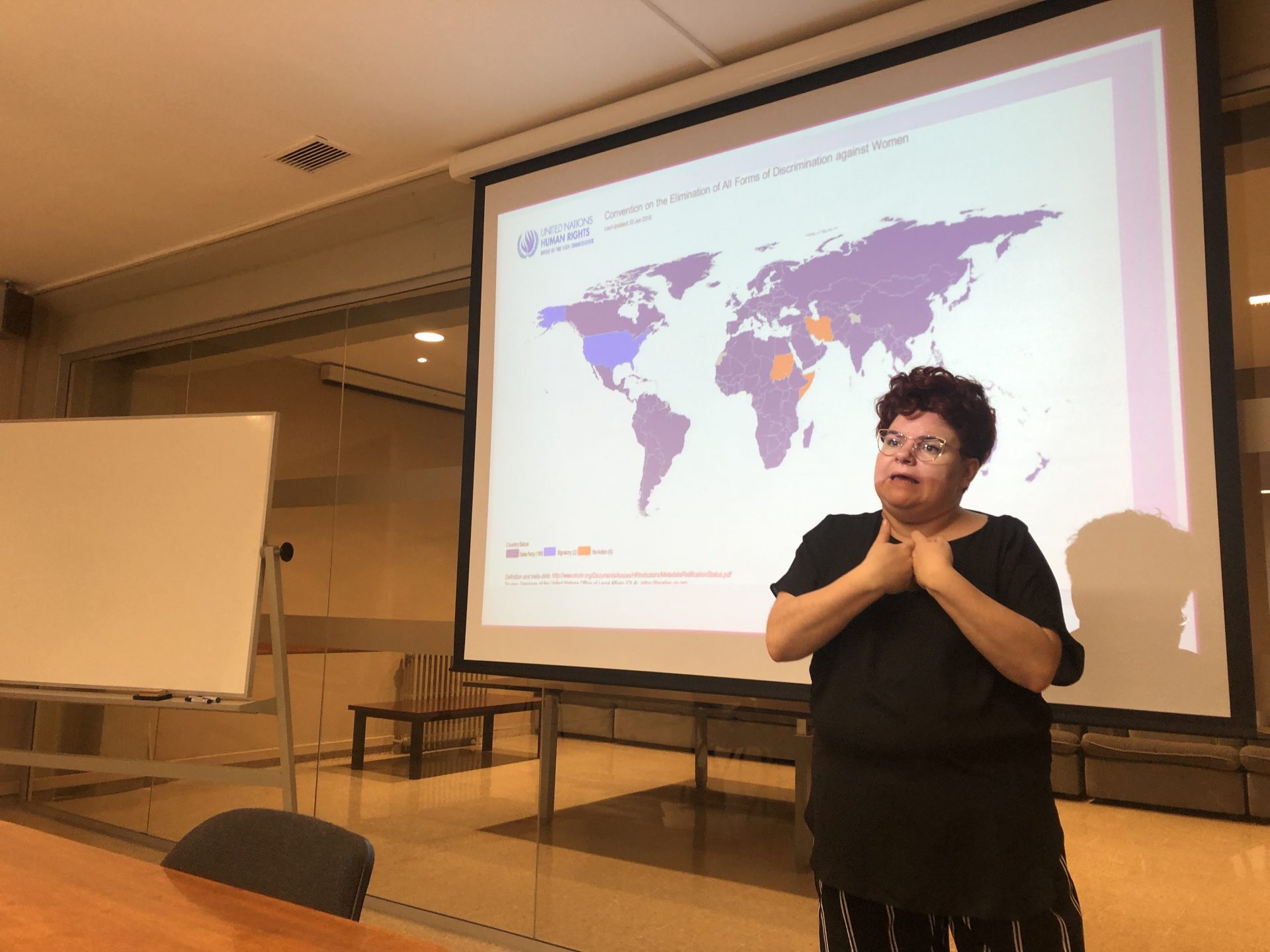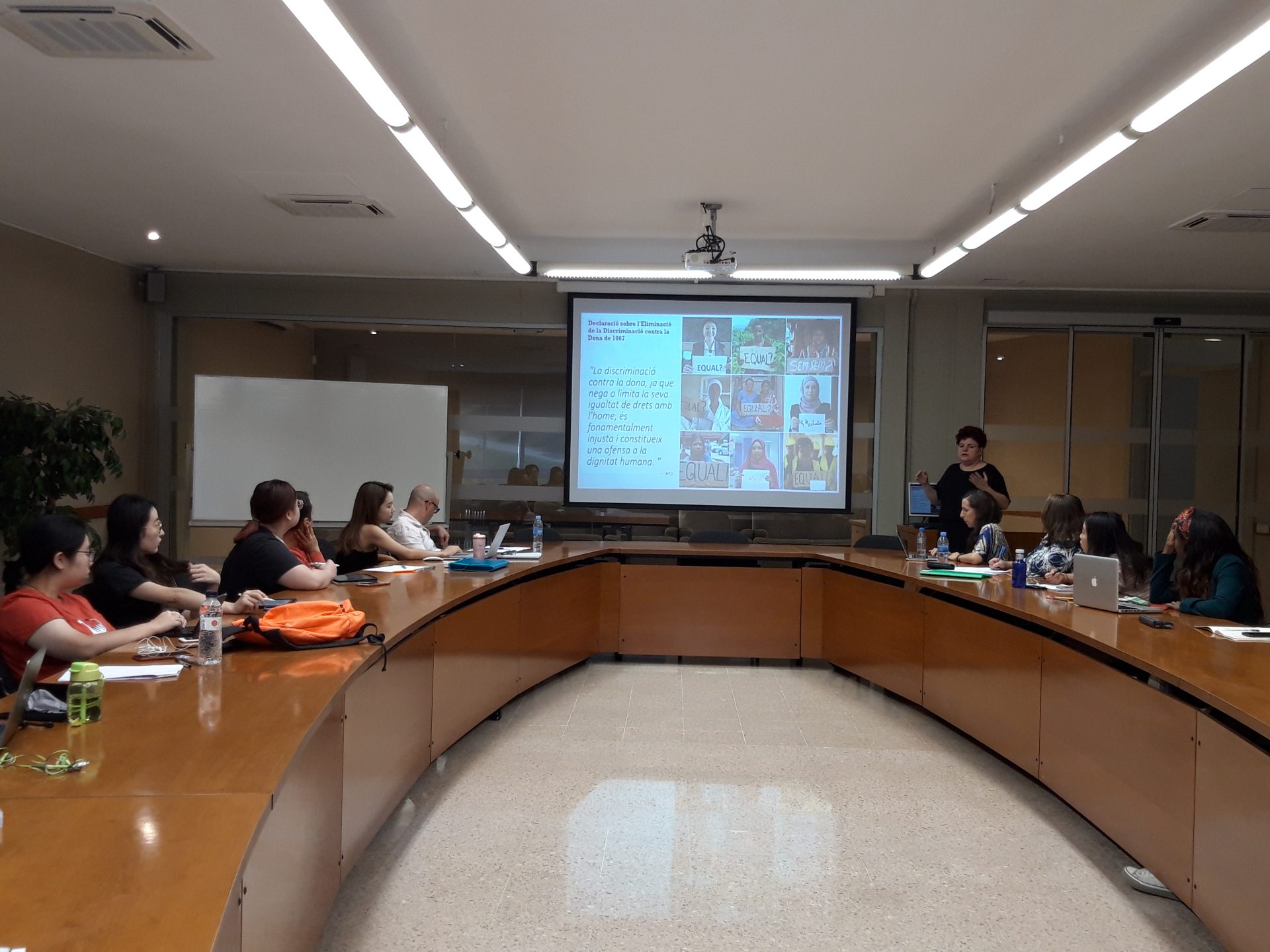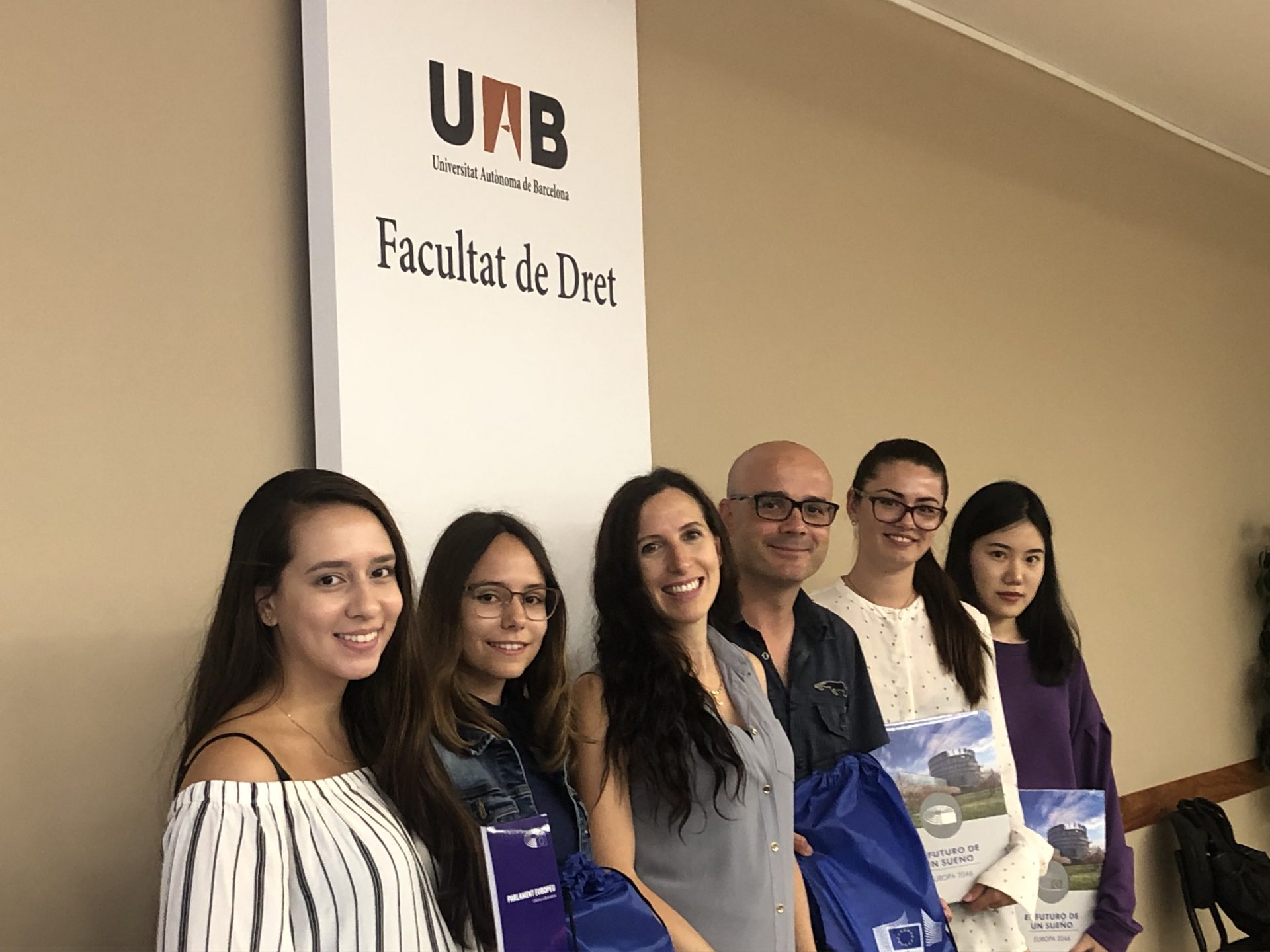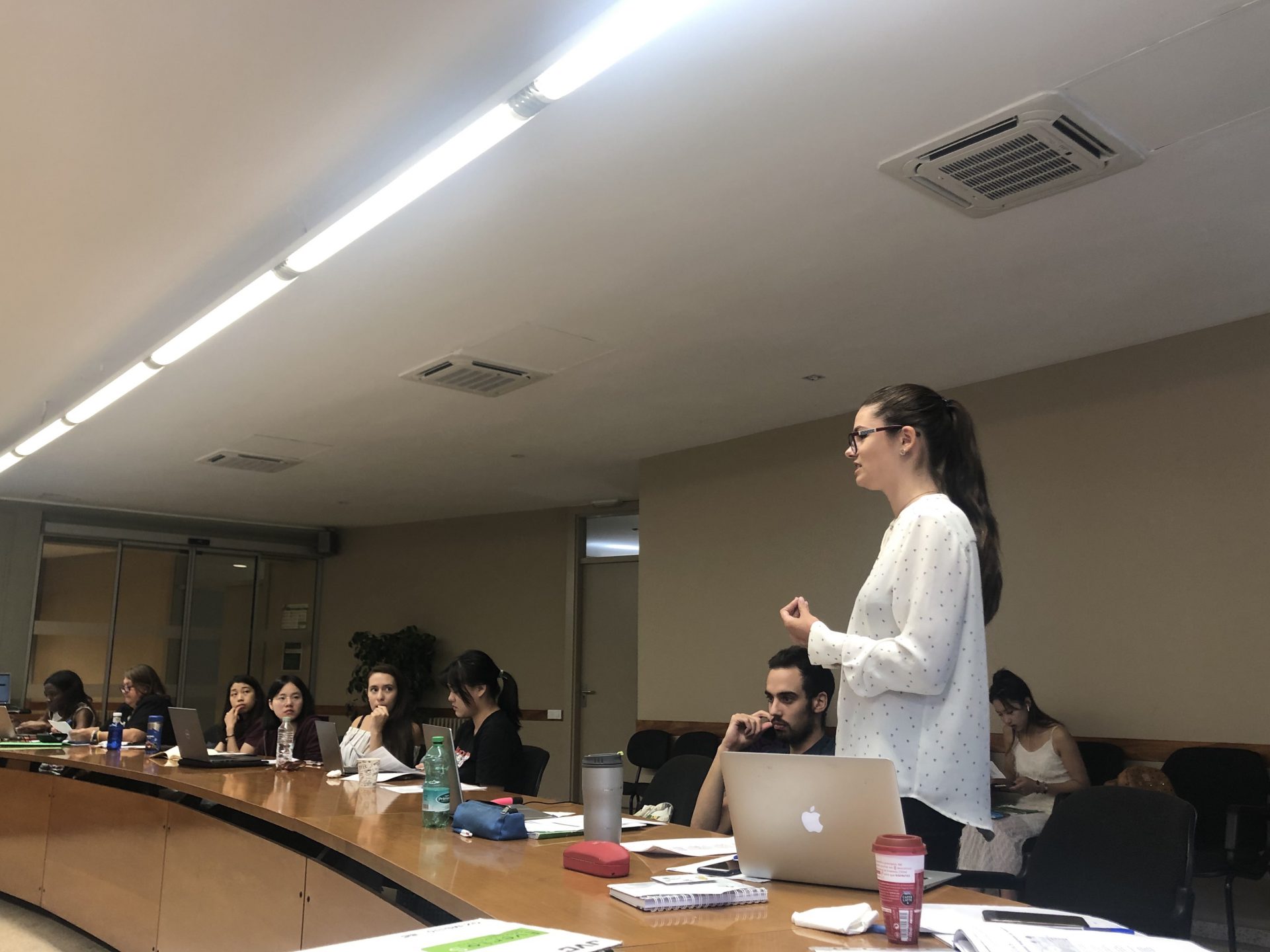INTRODUCTION TO THE EUROPEAN UNION
This course will provide participants with a comprehensive overview of the EU. It will also offer seminars about specific policies of the EU such as economy, environment, security and research & innovation. In all these sessions students will examine the main issues of debate that the EU is facing today. This will include topics such as the consequences of Brexit, the current EU developments to manage the refugee crisis, the impact of right-wing governments in several EU Member States, or the increasing euro scepticism in the EU, amongst others
Seminar 1
HISTORY OF THE EU; CREATION AND EVOLUTION
HISTORY OF THE EU; CREATION AND EVOLUTION CONTENT
Prof. Lídia Ballesta Martí©
This lecture will consist of a chronologic explanation of the different enhancements and Treaties adopted within the EU since the creation of the European Communities to date.
Read more
Furthermore, it will be dedicated to an exploration of the historical, cultural and economic background experienced by European countries at different stages of European integration since the end of WWII.
It will constantly link to the different evolutionary stages of European institutions as well as European community enlargements, which have profoundly shaped events leading to the current momentum of European integration.
Students will learn the incentive that made some European countries create the Union, as well as the progressive amendments established in every Treaty. The overall lecture will allow students understand the historical and geographic context of the European Union, from the beginning o the present.
Seminar 2
OBJECTIVES AND COMPETENCES OF THE EU
Objectives and competences of the EU
Dr Cristina Blasi©
This lecture will introduce participants to the nature of the European Union and will focus on the
understanding of its objectives and principles. The objectives and values of the EU are crucial to understand the purpose and aims of such union. This lecture will also revise the competences that Member States have given to the European Union over the years and the reason for each of these cessions.
Read more
It also will analyse how historically the distribution of competences was divided into fictional pillars, and how these have been turned in to exclusive, shared and supportive competences of the EU since 2009. It will focus on those competences that the EU hold exclusive and shared competence and the advantages / disadvantages of such distribution. Participants will work with the Treaty and will have to read some case law in which the Court of Justice has specified such objectives thorough its jurisprudence. It will also compare the objectives and principles of the EU with other international organisations, so that students can comprehend the uniqueness of this international organisation.
Seminar 3
INSTITUTIONS AND BODIES OF THE EU
Institutions and bodies of the EU.
Dr Cristina Blasi©
Each EU institution has several functions and it is important for EU citizens to understand not only the differences but also the synergies created among all them.
Read more
This lecture will briefly examine the primary EU institutions, agencies and bodies so that the non-EU students can grasp the complexity of the structural and organizational features of the European Union.The main purpose of the EU institutions will be explained, and the composition and functioning of these bodies will also be detailed.
Seminar 4
DEMOCRACY AND EU ELECTIONS
Democracy and EU Elections
Enrique Hernández©
This lecture aims to introduce students to the study of elections and democracy in the European Union. The first part of the lecture will be devoted to explain the functioning of European Parliament elections and a historical overview of their evolution and results.
Read more
This first part of the lecture will put a special emphasis on the most recent elections, characterized by the upsurge of Eurosceptic and populist
parties at the EU level.
The second part of the lecture will introduce students to the debates surrounding the concept of the EU “democratic deficit” and its relationship to EP elections.
Seminar 5
THE DIGITAL SINGLE MARKET AND INTELLECTUAL PROPERTY IN THE EU
The digital single market and intellectual property in the EU
Prof. Lídia Ballesta Martí©
This session on the protection of IP in the EU Digital Single Market Strategy, participants will get a general background about the Single Market, EU policies and EU agencies while learning about the importance of Intellectual Property in the Digital Single Market scenario.
Read more
The first part of the lecture will be focused on explaining the basis of the Single Market policy and the EU Digital Single Market Strategy. The second part of the lecture will introduce students to Intellectual Property in the EU and the role of the EUIPO and the Copyright rules.
Seminar 6
SEA BORDERS AND MIGRATION MANAGEMENT IN THE EUROPEAN UNION POLICY ON MIGRATION AND ASYLUM
Sea Borders and Migration Management in the European Union Policy on Migration and Asylum
Linda Cottone©
This lecture will consist of a chronologic explanation of the different enhancements and Treaties adopted within the EU since the creation of the European Communities to date.
Read more
Furthermore, it will be dedicated to an exploration of the historical, cultural and economic background experienced by European countries at different stages of European integration since the end of WWII.
It will constantly link to the different evolutionary stages of European institutions as well as European
community enlargements, which have profoundly shaped events leading to the current momentum of European integration.
Students will learn the incentive that made some European countries create the Union, as well as the
progressive amendments established in every Treaty. The overall lecture will allow students understand the historical and geographic context of the European Union, from the beginning o the present.
The structure of the lecture will be the following:
1. EU Policy on Migration and Asylum – general overview
2. Legal framework on the applicable law of the sea (introduction)
3. Distinguishing interception/interdiction at sea from rescue operations
4. Smuggling of migrants at sea
5. Trafficking in Persons
6. Identification of Migrants, Refugees and Asylum Seekers
Seminar 7
PRIVACY AND DATA PROTECTION IN THE EU
Privacy and data protection in the EU
Dr Cristina Blasi©
Data protection and privacy are two fundamental rights that can be enforced by any person located at the EU territory. Therefore, on of the main goals of this session is spreading awareness of what the right to data protection entails.
Read more
This course will analyse the current EU laws and debates in the field of privacy within the digital era we are living.
Students will understand the evolution of laws and instruments parallel to the technological progress, and the future challenges in the field of data protection. It will also explain the main new rules included in the GDPR and the proposed e-Privacy Regulation.
Seminar 8
ENVIRONMENTAL PROTECTION IN THE EU
Environmental protection in the EU
Paola Rocchi, Joint Research Centre©
The goal of the lecture is to provide participants with a basic understanding of European environmental policy. After an introduction on sustainable development and the guiding principles of environmental protection, the lecture will provide a historical perspective on the position of the EU on environmental protection over time.
Read more
Then, the seminar will provide an overview on the main environmental challenges we face today and what targets the EU sets itself in order to face them.
Finally, two main instruments for emissions reduction implemented by the EU – the Emission Trading Scheme and the Energy Tax Directive – will be introduced and analysed trough a class activity.
Seminar 9
HUMAN FUNDAMENTAL AND CITIZENSHIP RIGHTS IN THE EU
Human, Fundamental and Citizenship rights in the EU.
Dr Cristina Blasi©
Human and fundamental rights are protected by different institutions, primarily by the ECtHR and the CJEU. These courts enforce rights included in the EU Charter of fundamental rights and the European Convention of Human Rights.We will analyse these rights during the session.
Read more
The lecture will also examine the citizenship rights that all EU citizens enjoy within the territory of the EU, such as the freedom of movement/establishment, the EU Citizens’ Initiative, the right to petition before the EP and the access to the European Ombudsman.
Seminar 10
ECONOMICS IN THE EUROPEAN UNION
Economics in the European Union
Alicia Gómez Tello©
This lecture aims to present students the main effects of the European integration from an economic viewpoint. The lecture will start with a review of four economic blocs (free trade area, custom union, common market, and economic union) in order to identify which type of economic bloc is the European Union (EU).
Read more
When a country enters in the EU, it experiences important changes: free trade with other members, an increase in its market size, free movement of capital and people, etc.
We will analysis the impact of these changes at national level combining both the theoretical predictions and the empirical evidence. Then, we will focus on the effects within countries, namely at regional level, using the concepts and predictions of the new economic geography.
This analysis will allow us to introduce the regional policy, one of the most important EU policies. On the other hand, we will focus on the European monetary policy and we will discuss the consequences of the Euro crisis and the Brexit.
Seminar 11
RESEARCH AND INNOVATION IN THE EU
Research and innovation in the EU.
UAB©
This lecture aims to introduce students to EU policies and programmes on research (e.g. Framework programme) and education (e.g. Erasmus).
The first part will be devoted to highlighting the difference between exclusive and shared competences in EU policies according to EU Treaties and to giving a broad overview of research and education programmes as well as their funding opportunities.
Read more
The second part will focus on a practical overview of policy influence in Brussels and how different stakeholders do represent their interests and try to influence EU decision-makers.
Seminar 12
SURVEILLANCE IN THE EU
Surveillance in the EU
Dr Cristina Blasi©
This lecture provides an overview of the major regulations and case-law governing surveillance in the European Union (EU) over the last several years. It examines the EU instruments that collect and process data for security purposes, and it identifies the new legal basis included in the Treaty of Lisbon with regard to security measures.
Read more
As for EU bodies involved in surveillance activities, this chapter focuses on the role of Europol as the main EU agency that provides support to the member states in the prevention, combat, and prosecution of crimes. In addition, it examines the limited role of the in “national security” measures and it will determine whether the EU has legal authority to regulate surveillance practices conducted by intelligence services in the member states.
Seminar 13
GENDER & EQUALITY IN THE EU
Gender & Equality in the EU.
Prof. Serena Natile©
Prof. Lídia Ballesta©
The lecture has two parts. The first part will approach the concept of gender from an international point of views and the evolution of the international norms. The second part will illustrate EU gender policies in relation to family, employment and migration.
Read more
It will provide participants with the instruments to analyse the gender implications of EU law and reflect on how law and regulation can be used to address social inequality.
This lecture examines, and encourages participants to reflect on, the importance of gender relations in the development and functioning of the international organisations and also the European Union (EU).
It will provide an overview of the history of gender in the international and EU levels, focusing in particular on the principle of non discrimination. Regarding the EU analysis, it will examine EU gender policies in relation to family and work for both EU citizens and thirdcountry nationals.
The final part of the lecture will reflect on the challenges of intersectional discrimination, namely discrimination that occurs on different intersecting grounds such as gender, race, sexuality, socio-economic status, religion, age and disability.
Seminar 14
COHESION POLICY IN THE EU
Cohesion Policy in the EU.
Albert García©
This lecture introduces participants to the Cohesion Policy in the EU and will focus on the understanding of its objectives, priorities and functioning, which aim to reduce disparities in the level of development of European regions.
Read more
The session will introduce participants to past and current drivers of inequality in the EU as well as to the main institutions and policies that work to tackle inequality such as the Directorate-General for Regional and Urban Policy and the European Cohesion Policy.
The Cohesion Policy is one of the main investment tools of the EU and therefore participants will have the opportunity to learn about the different types of funds (ERDF, ESF; IPA, etc) and how they are aligned with European strategies (Europe 2020 Strategy) and channelized towards member states, regions and cities. The lecture will include many examples of projects that will show how a general EU policy impacts cities and regions paying attention to integrated and sustainable urban development.
The session also provides data from Eurostat about the classification of regions and their challenges in order to show that Cohesion Policy is a tailor-made policy for each European region. Participants will also be introduced to European institutions that represent regions such as the European Committee of the Regions and the role of regions and cities in the Cohesion Policy.
The lecture is also dedicated to the territorial cooperation programmes of the European Cohesion Policy (POCTEFA; INTERREG; URBACT, etc). Participants will learn about their priorities, functioning and will have the opportunity to learn from several projects managed at city level.
Participants are also expected to take an active role discussing about Cohesion Policy and comparing the main changes between the Cohesion Policy 2014-2020 and the new one for the period of 2021-2027.
Seminar 15
FUTURE CHALLENGES FOR THE EU INTEGRATION
Future challenges for the EU integration.
October 2, 2019 Dr Cristina Blasi©
The EU is largely viewed as a cornerstone of European stability and prosperity. For much of the last decade, however, many EU countries have faced considerable economic difficulties. Despite an improved economic situation in the EU since 2017, economic pressures and societal changes have contributed to the rise of populist and anti-EU political parties, at least some of which harbor anti-EU or Eurosceptic sentiments.
Read more
Such trends have complicated the EU’s ability to deal with multiple internal and external challenges. Among the most prominent challenges, this session will consist in an activity to promote the debate and critical analysis from students on topics such as Brexit, democracy and rule of law concerns in Poland and Hungary, migration and related societal integration concerns, and surveillance to combat a heightened terrorism threat.


